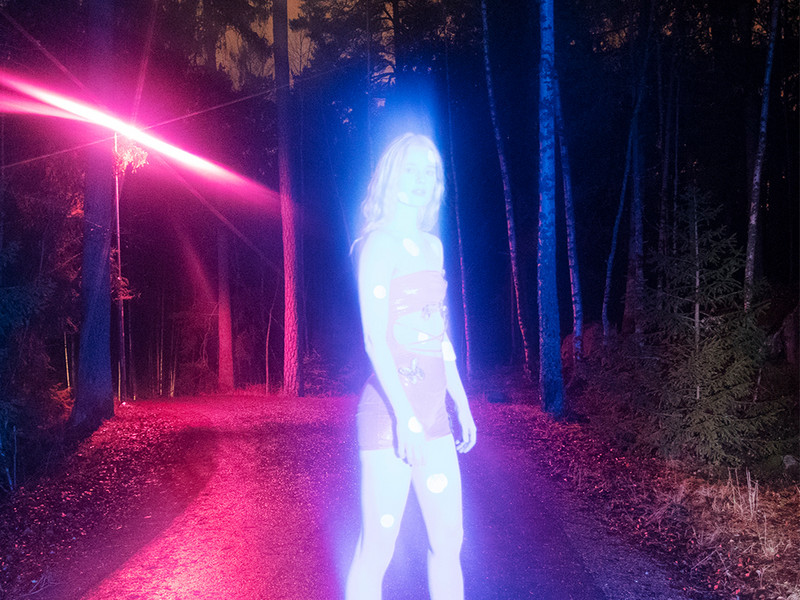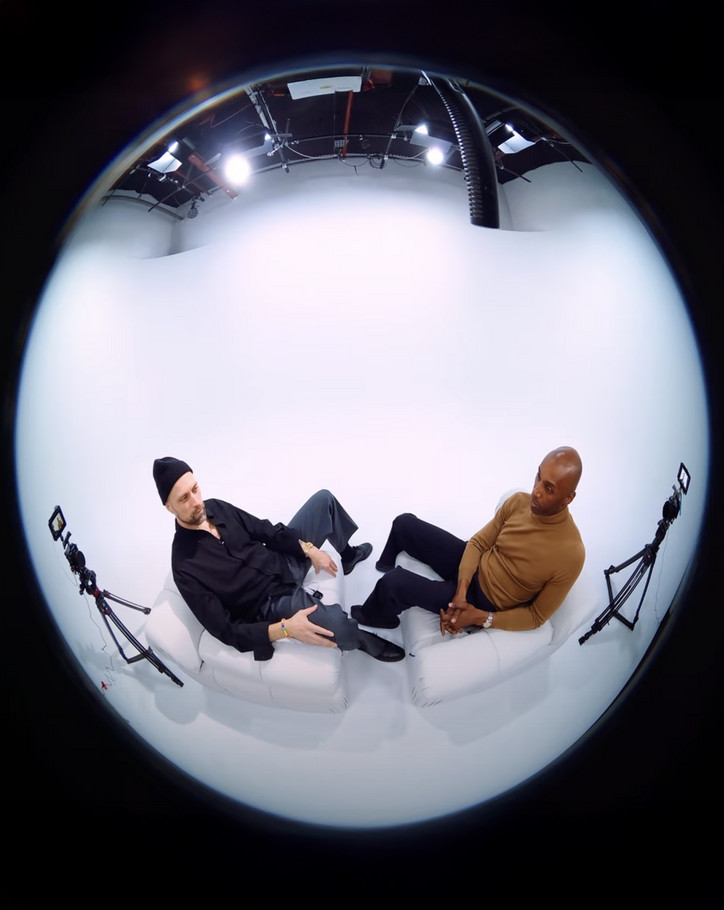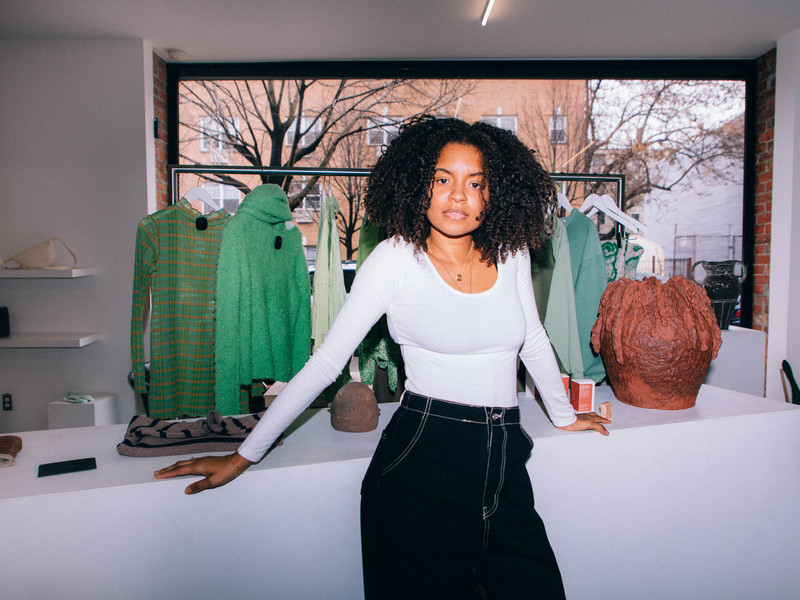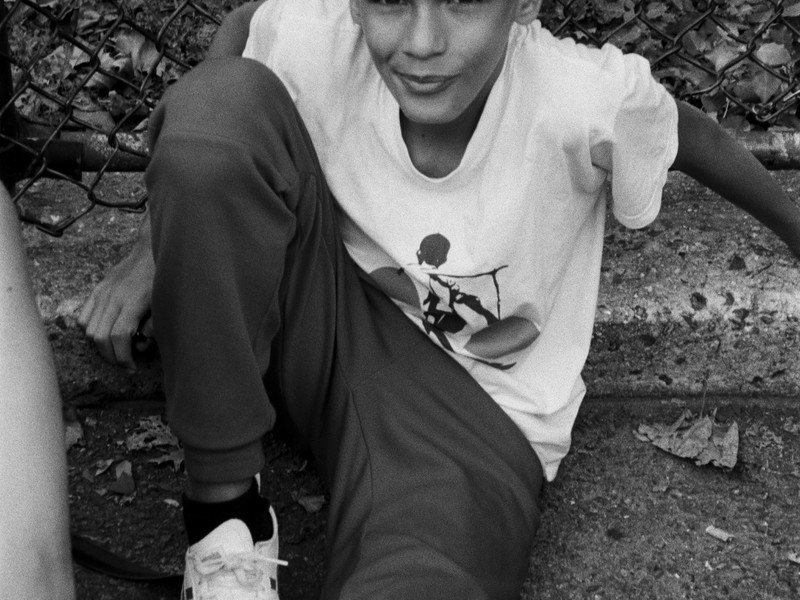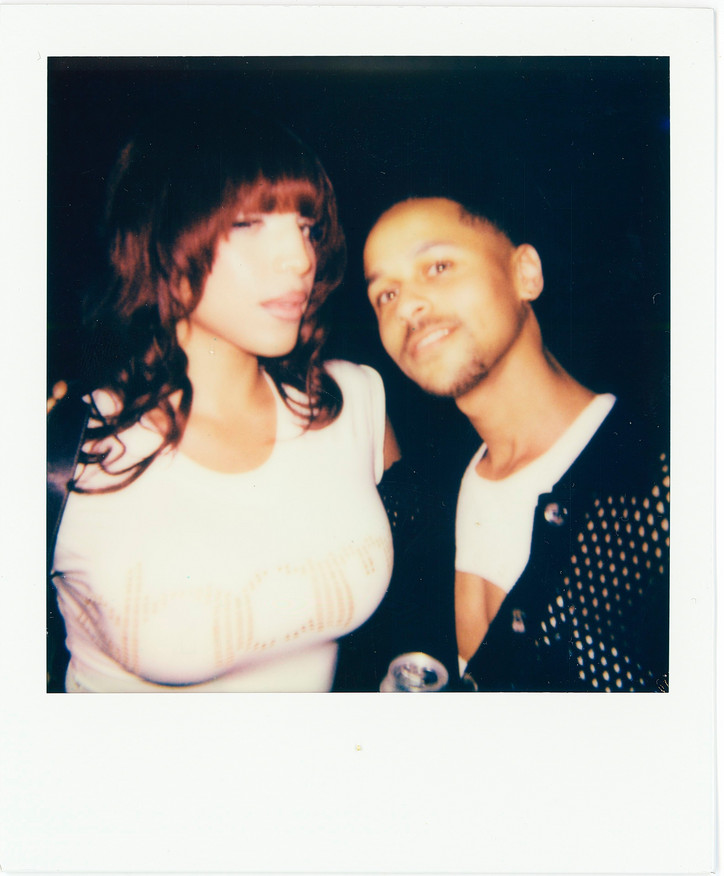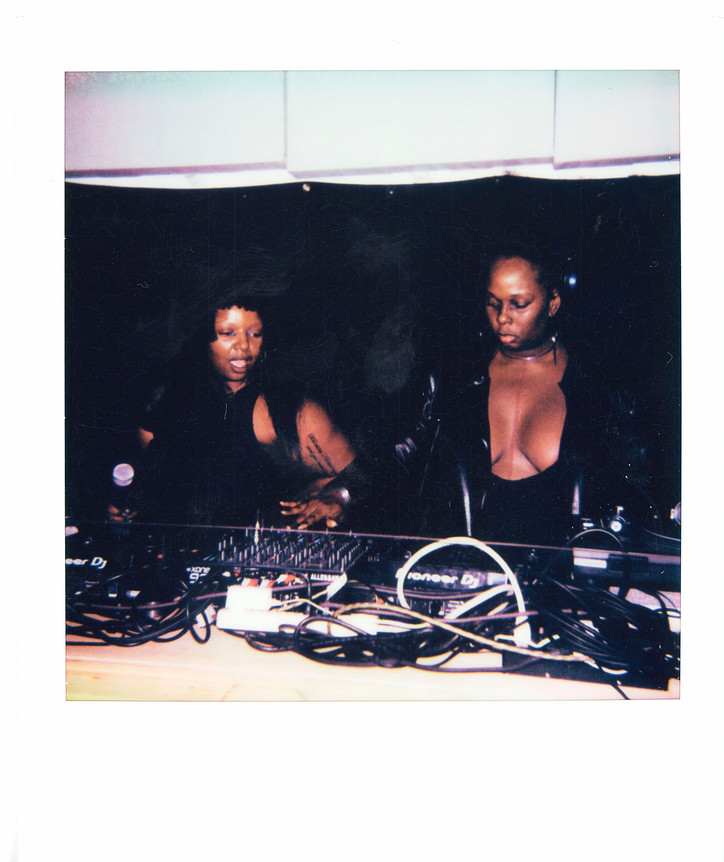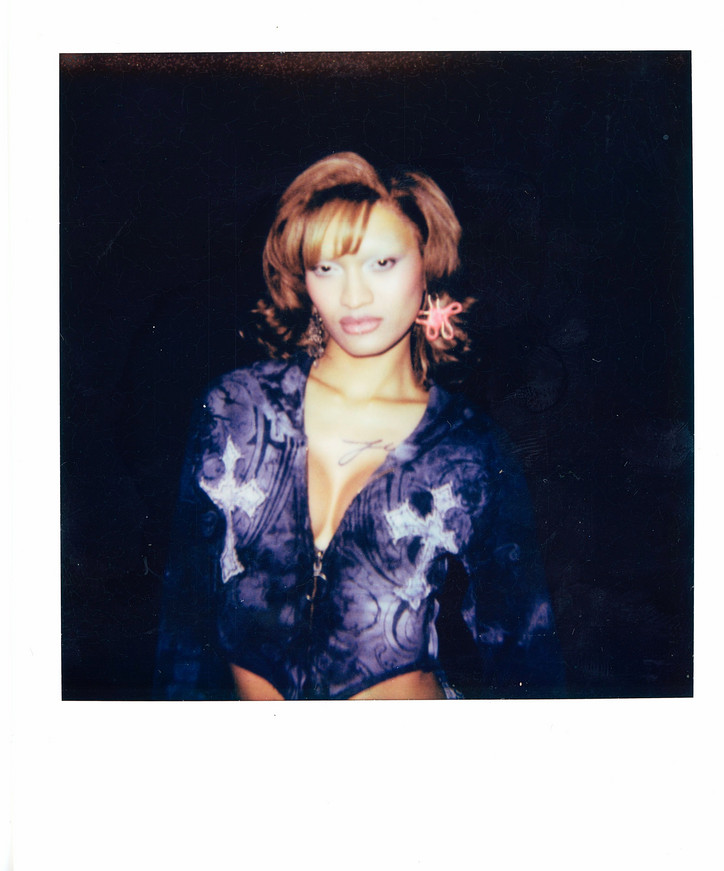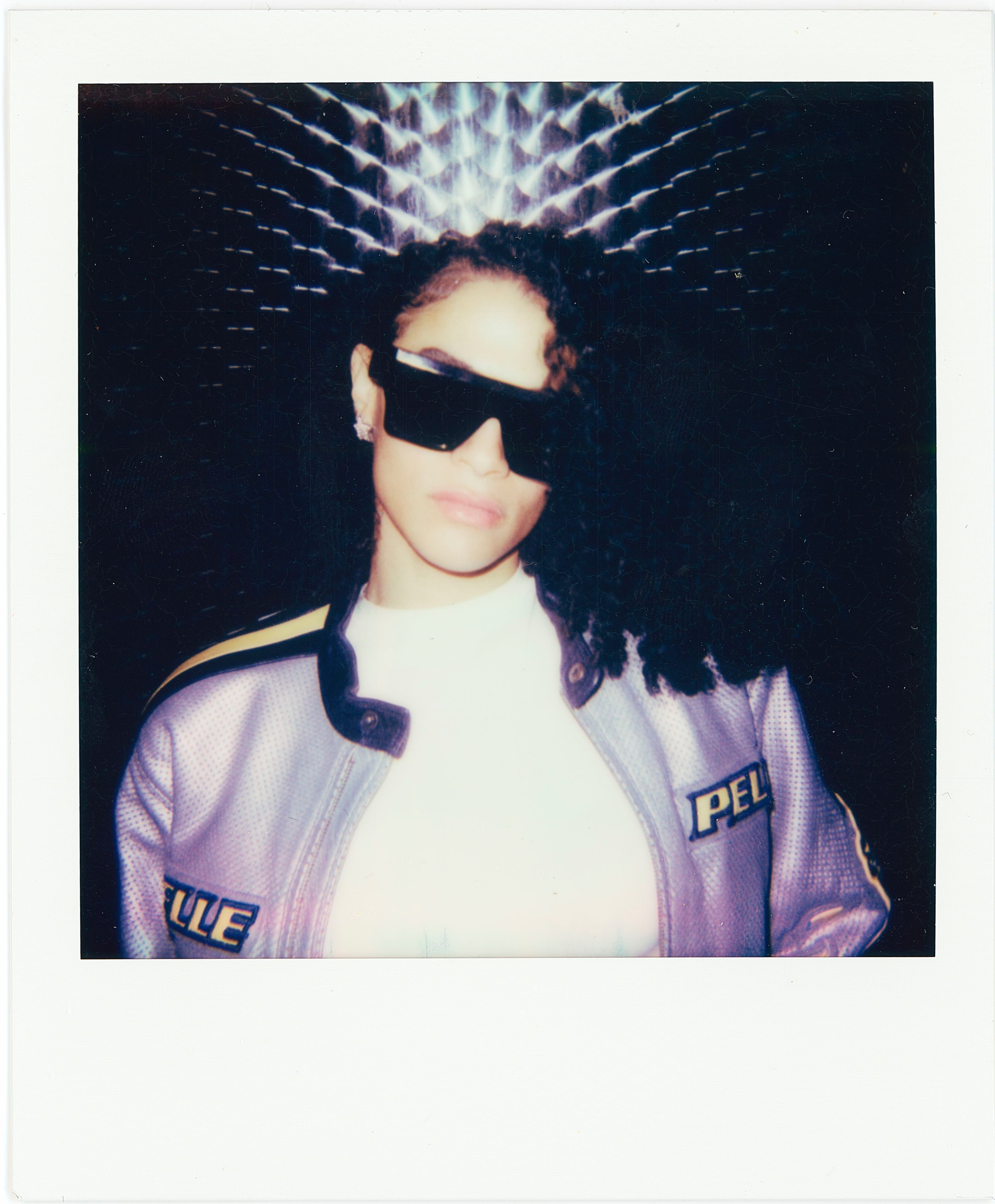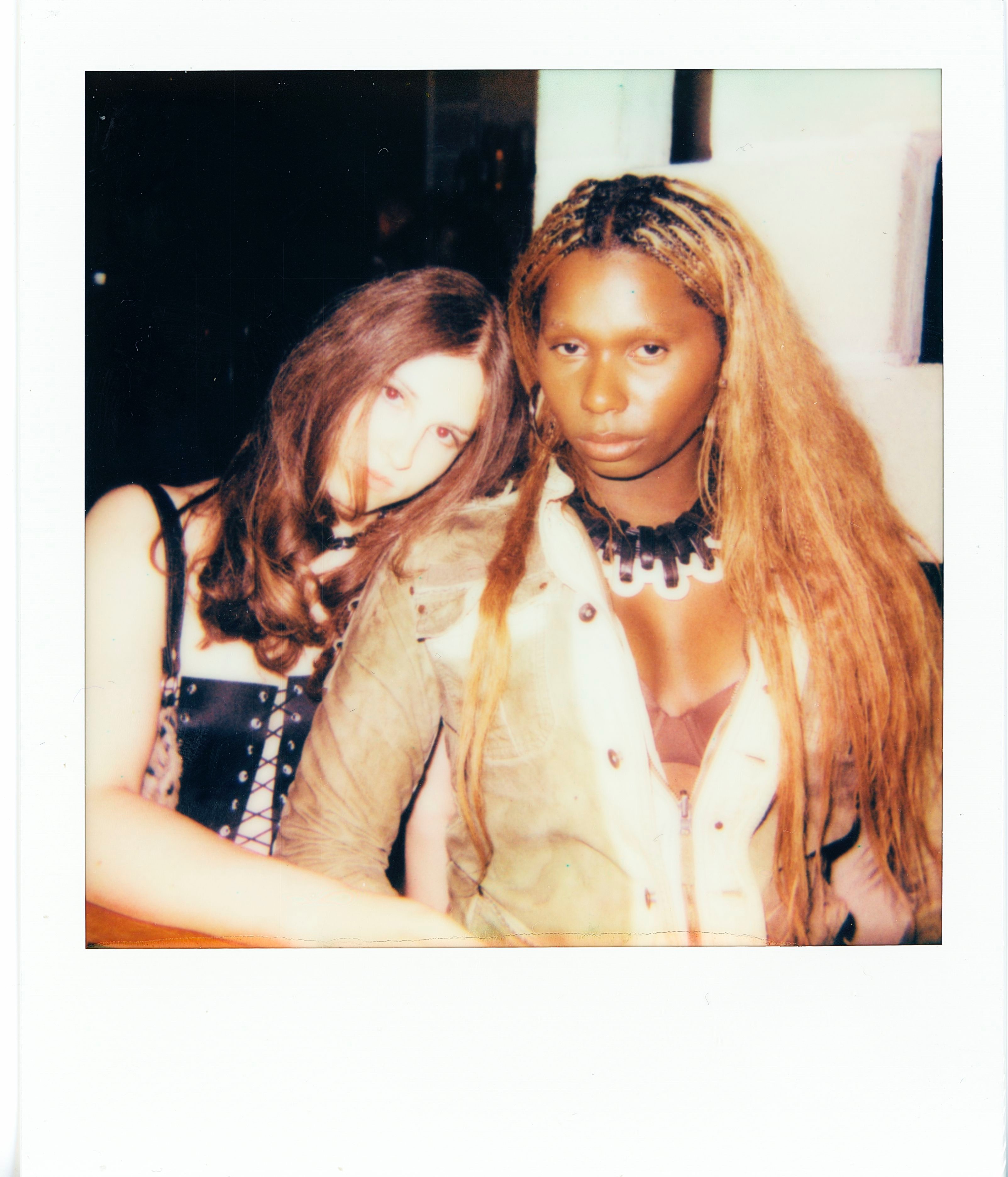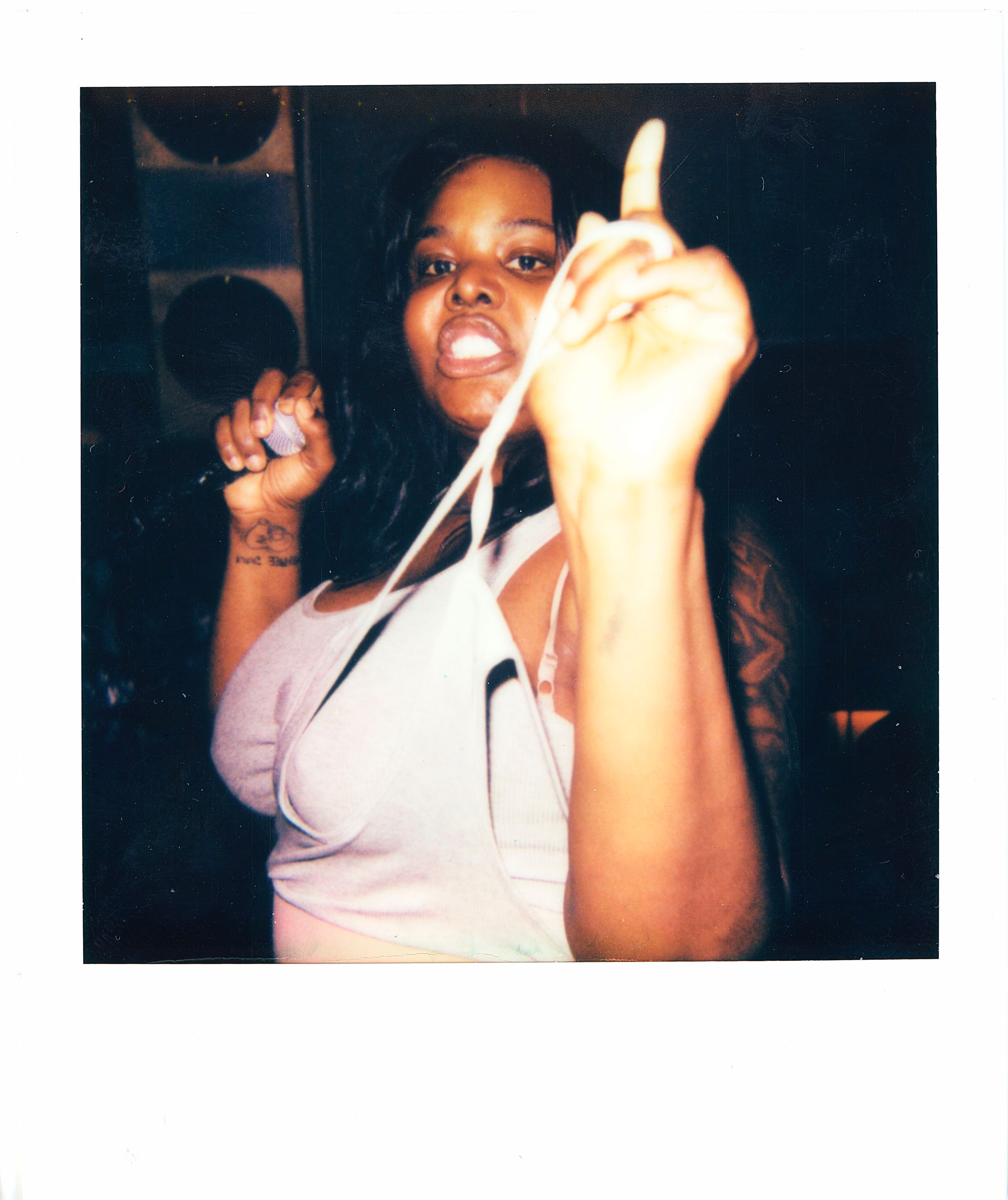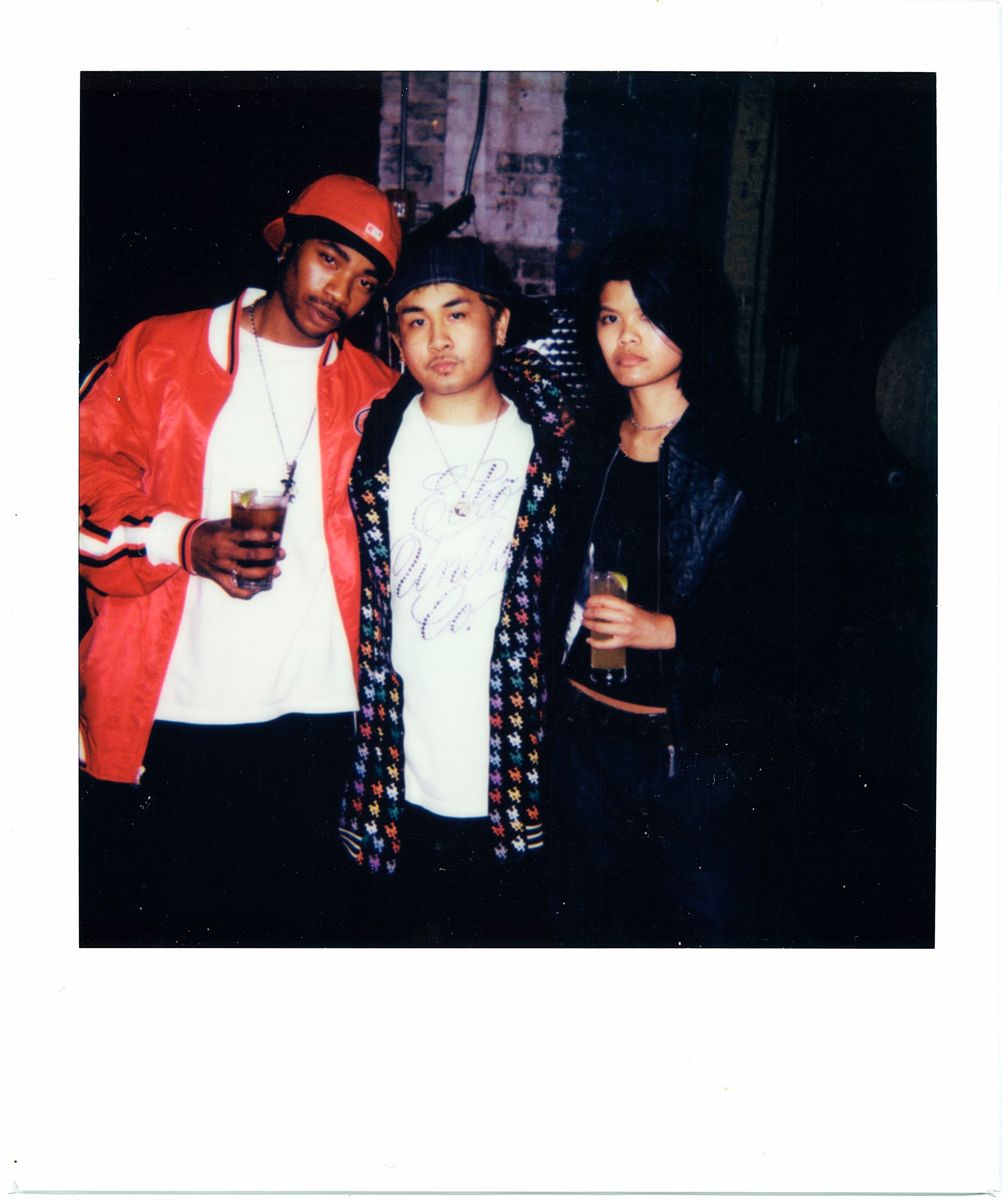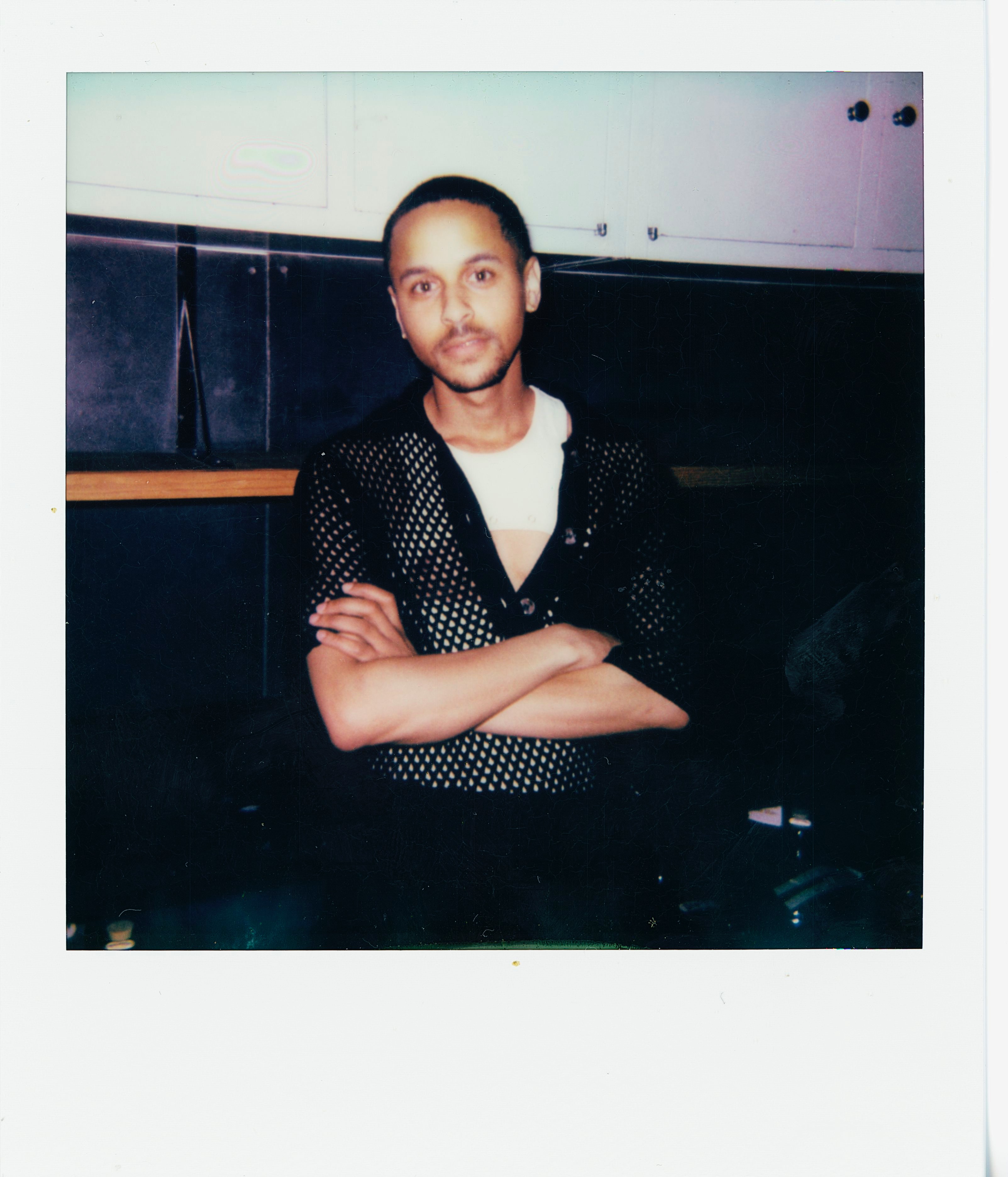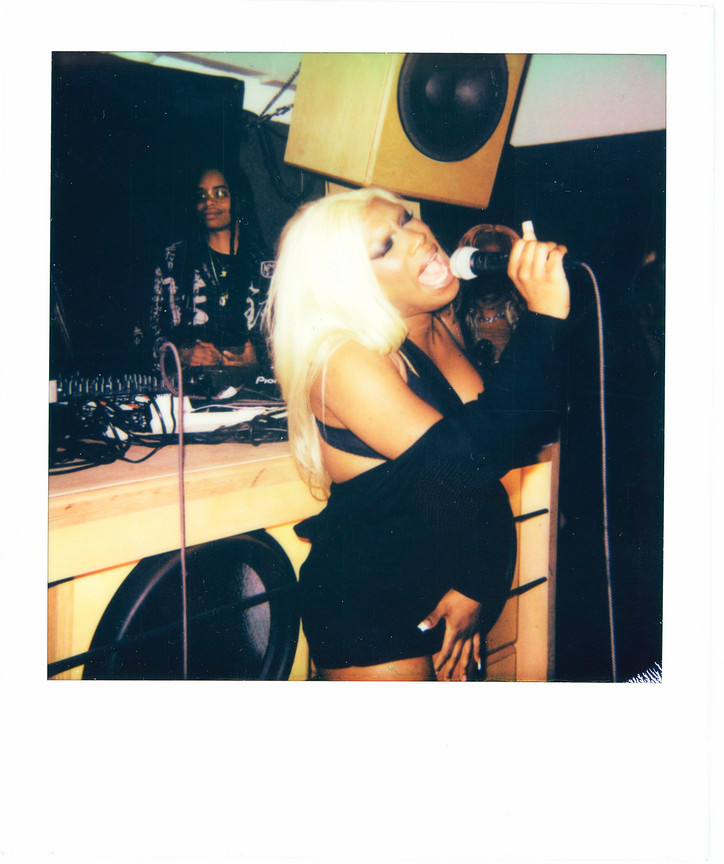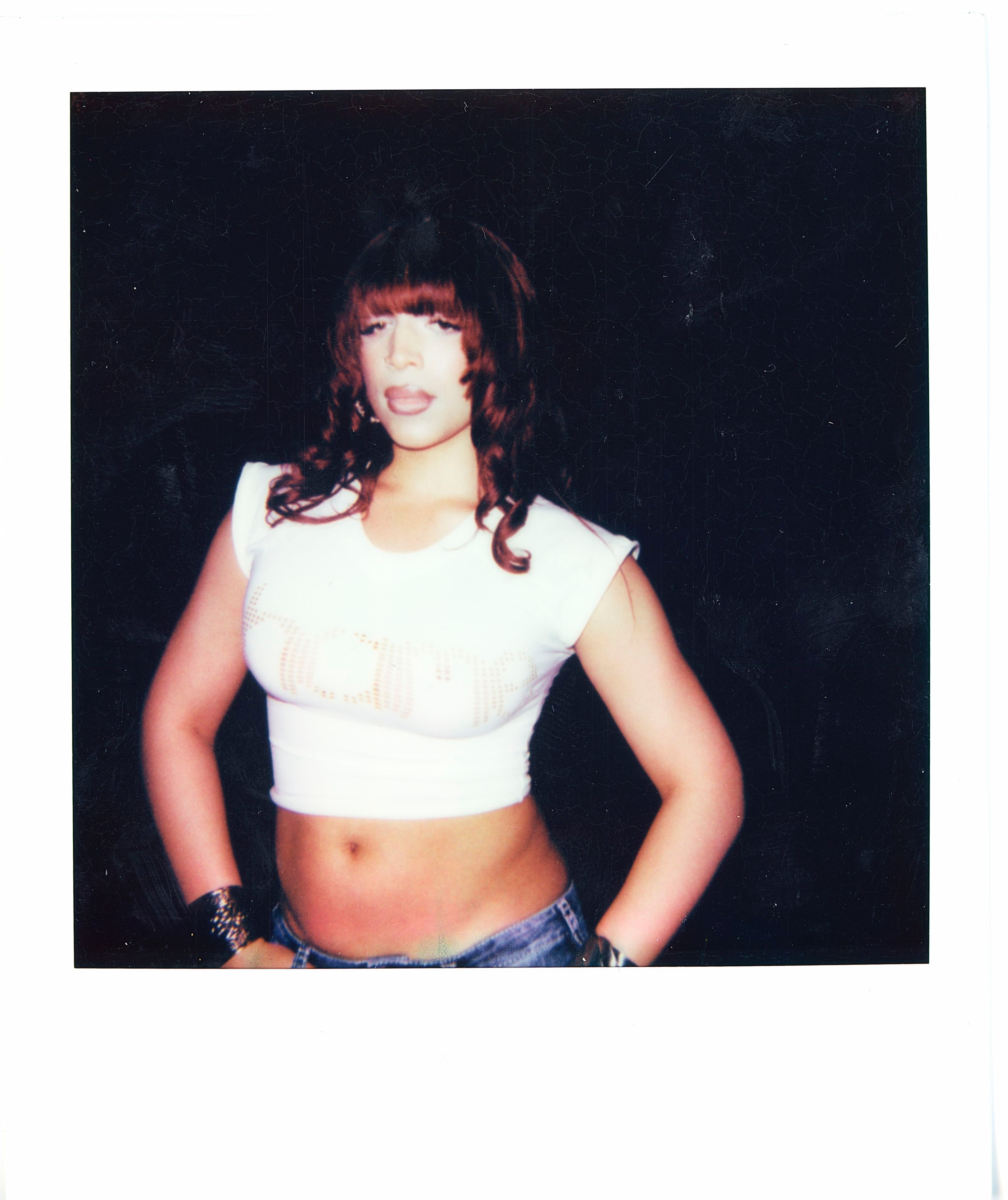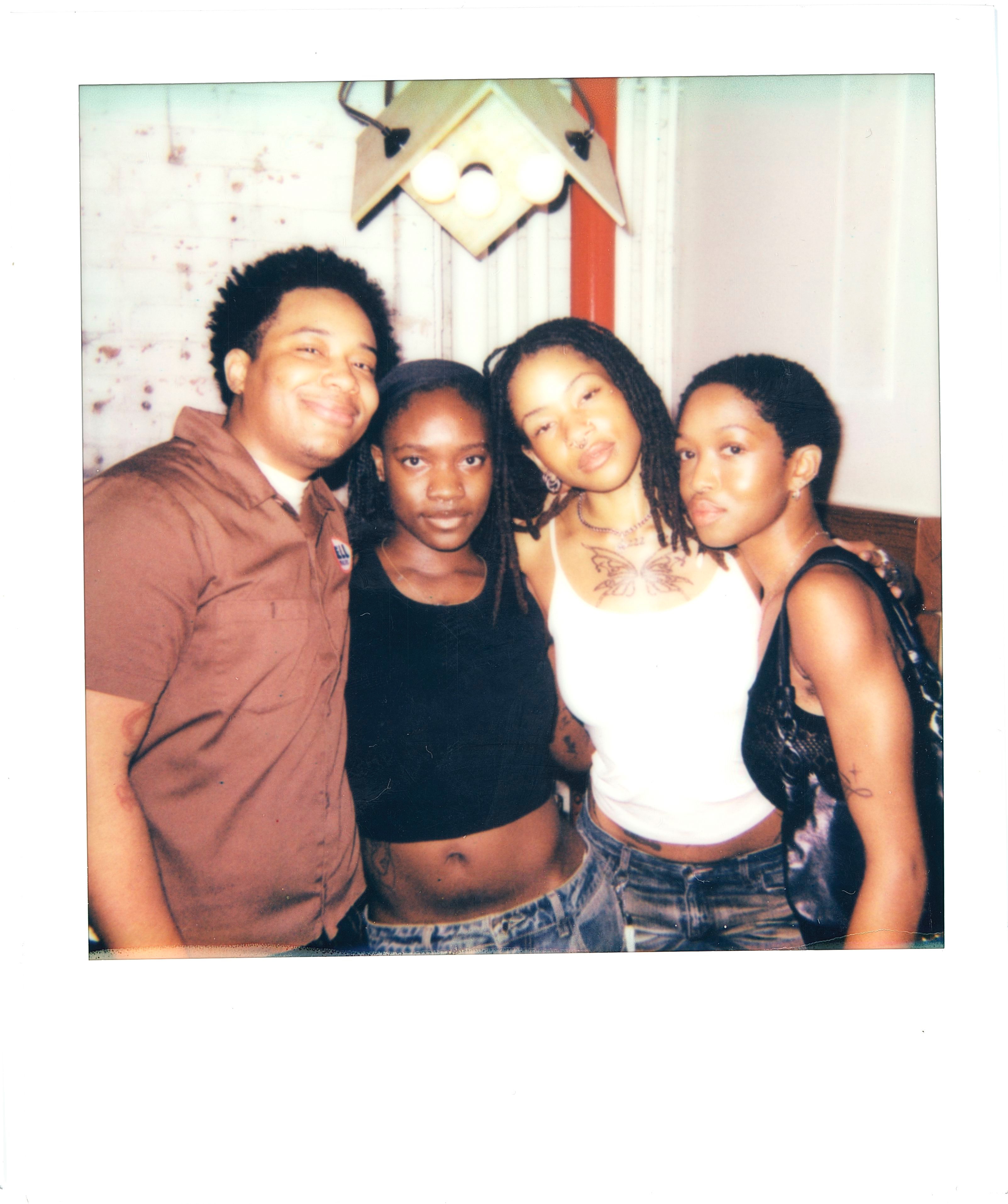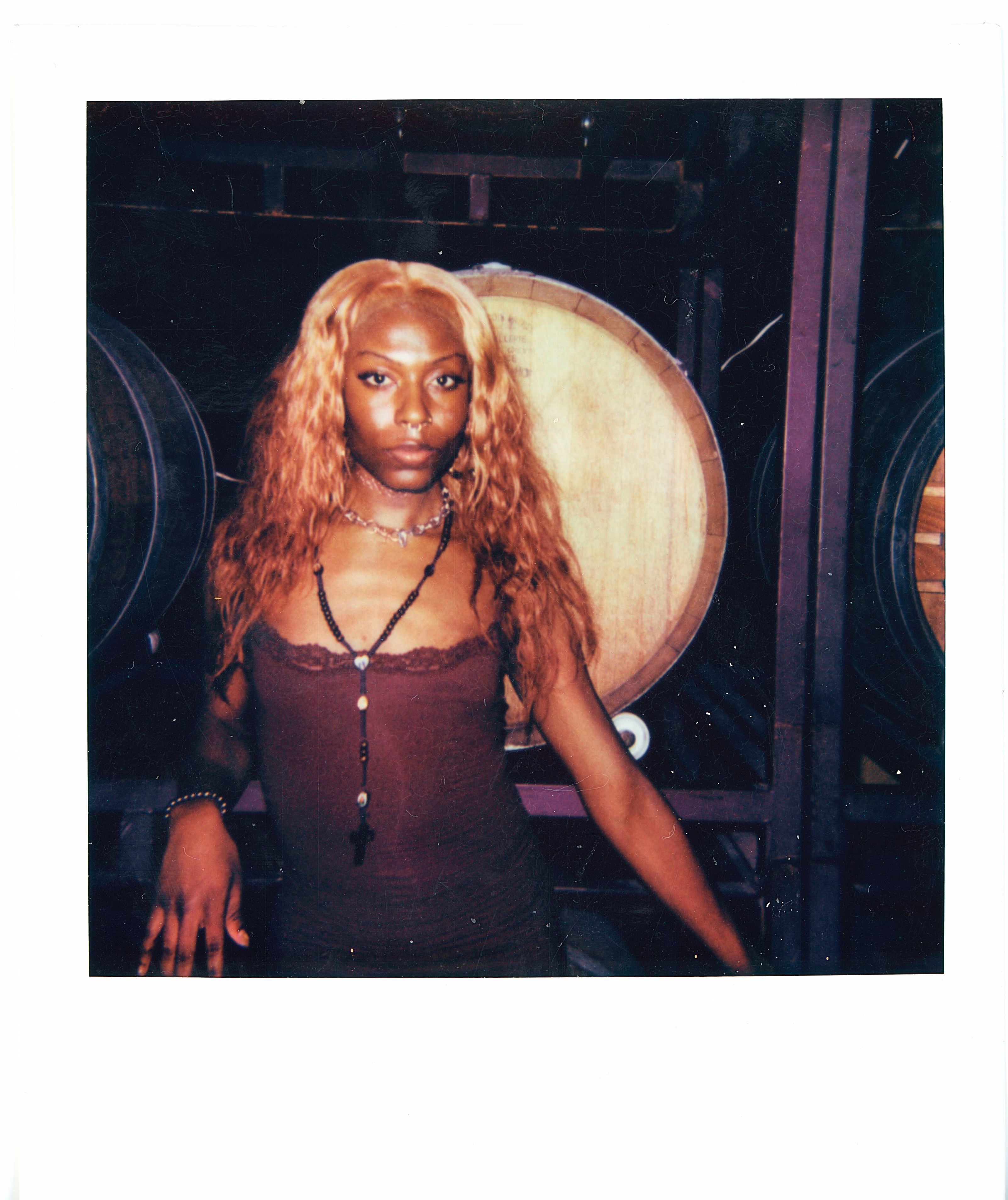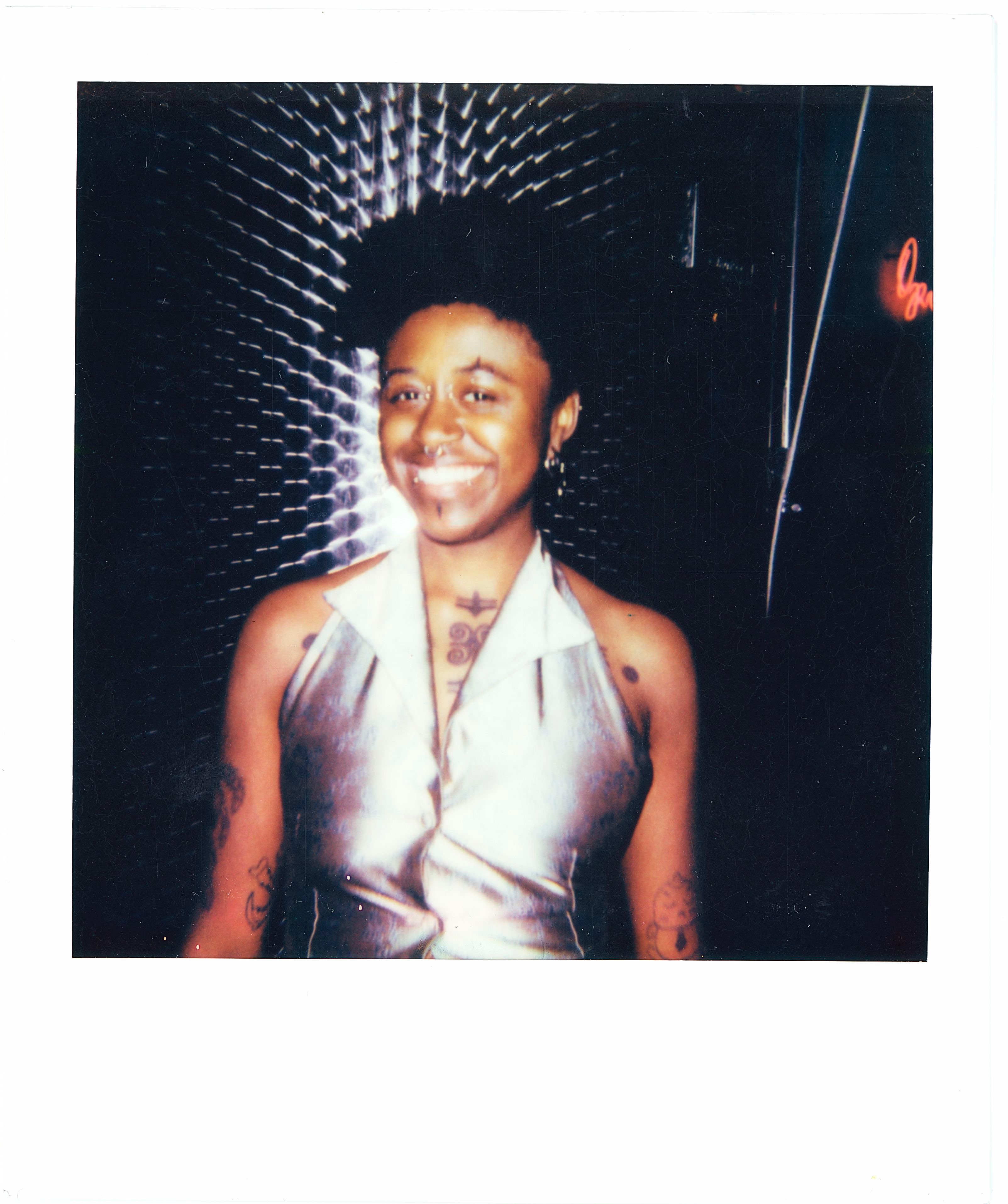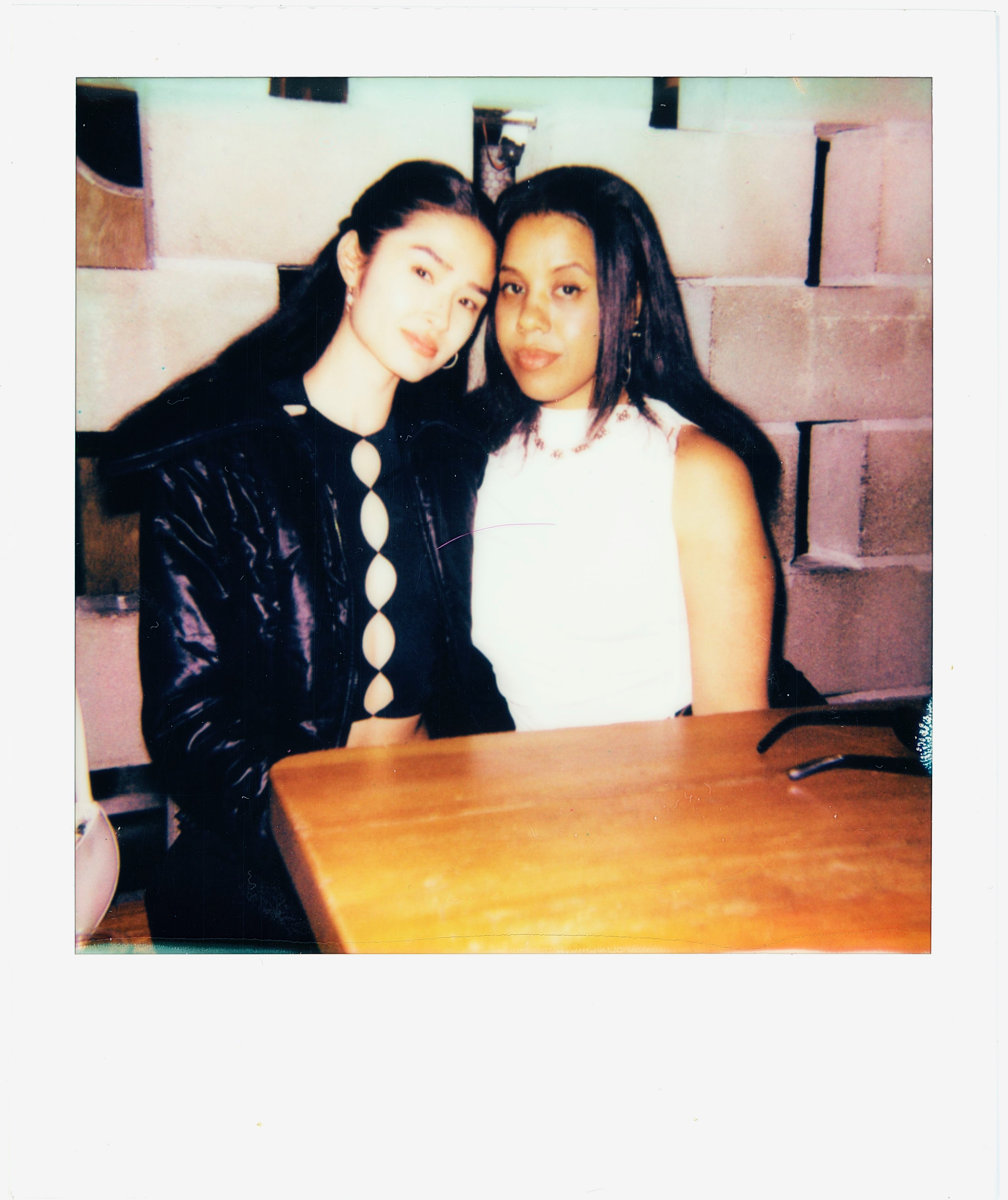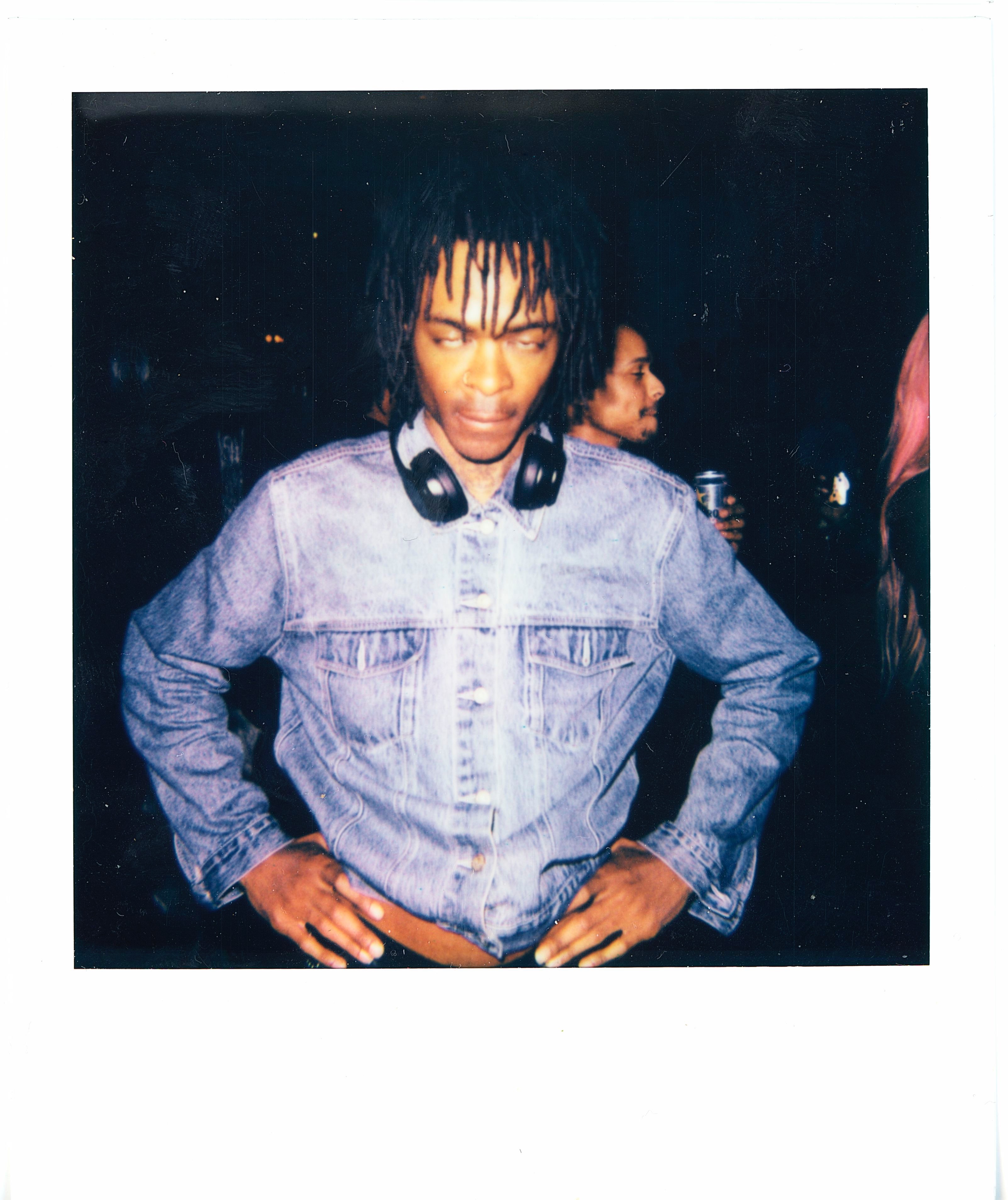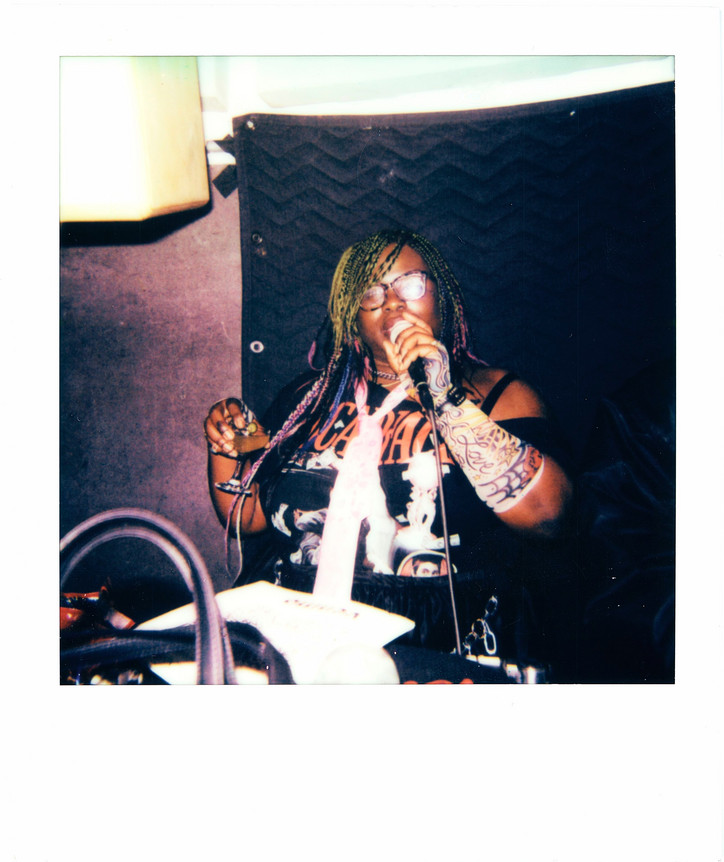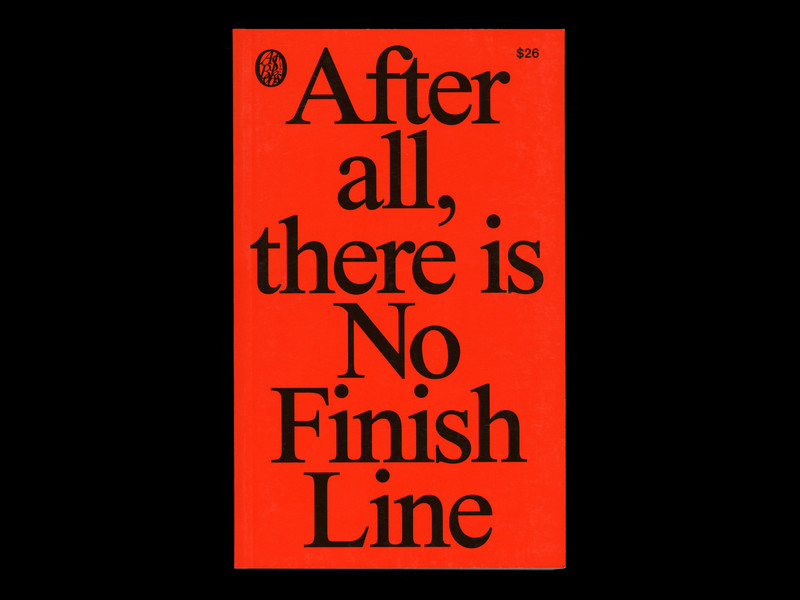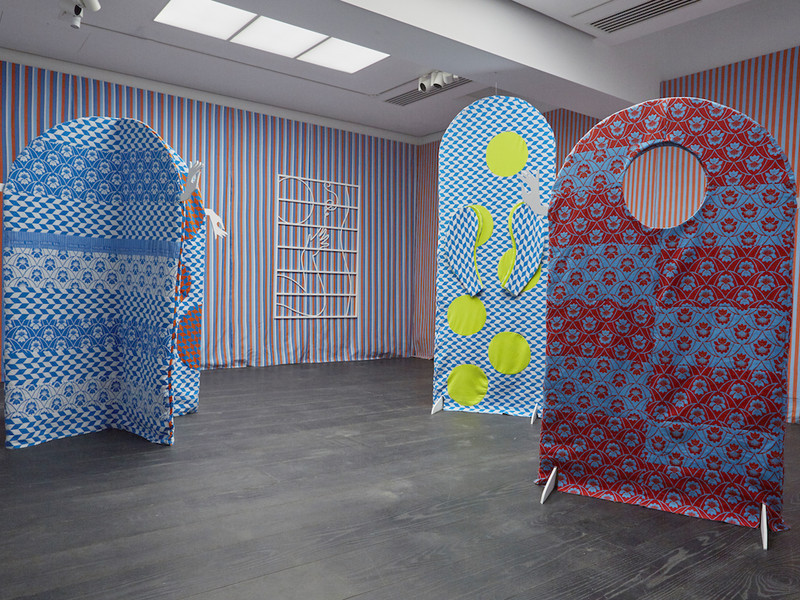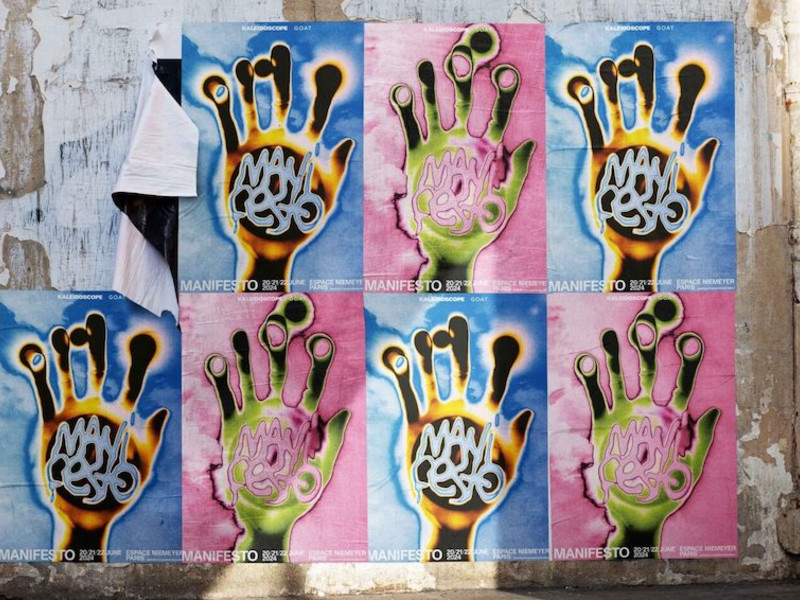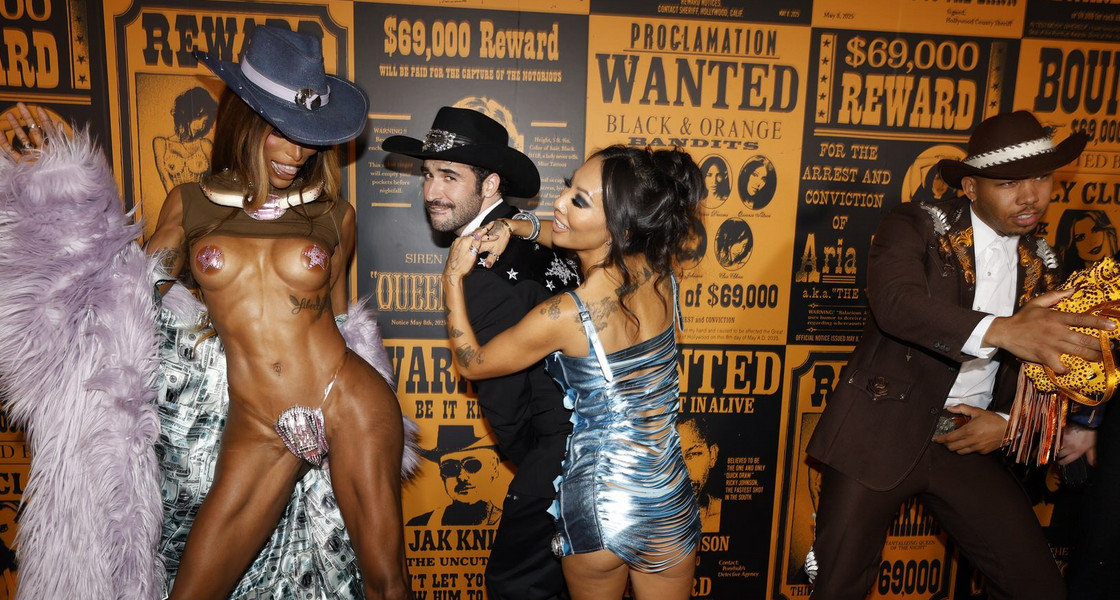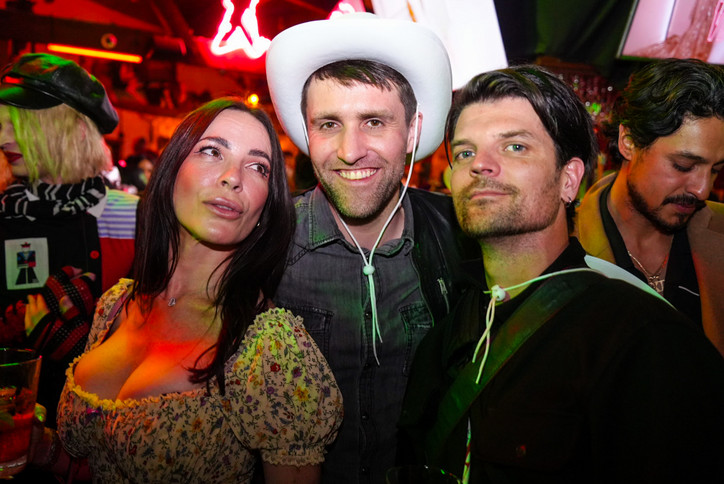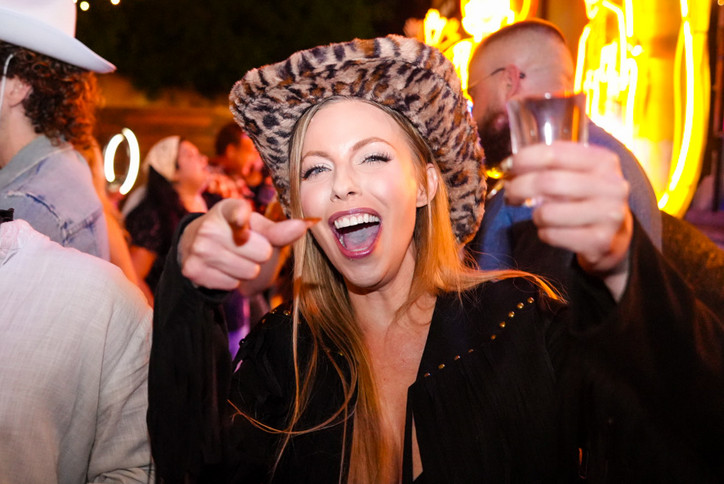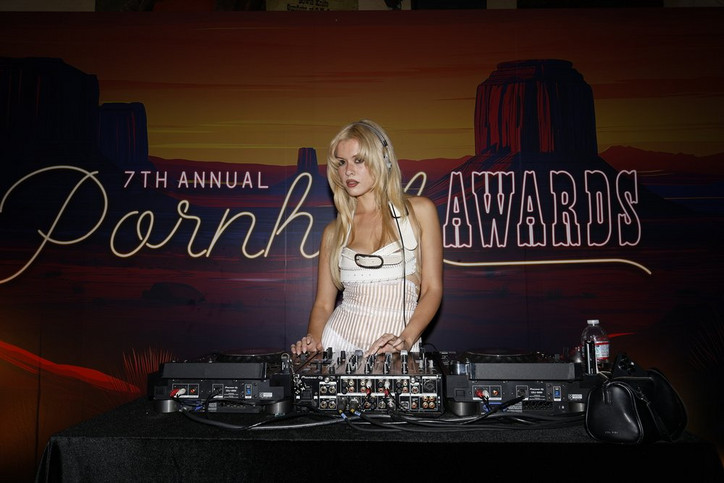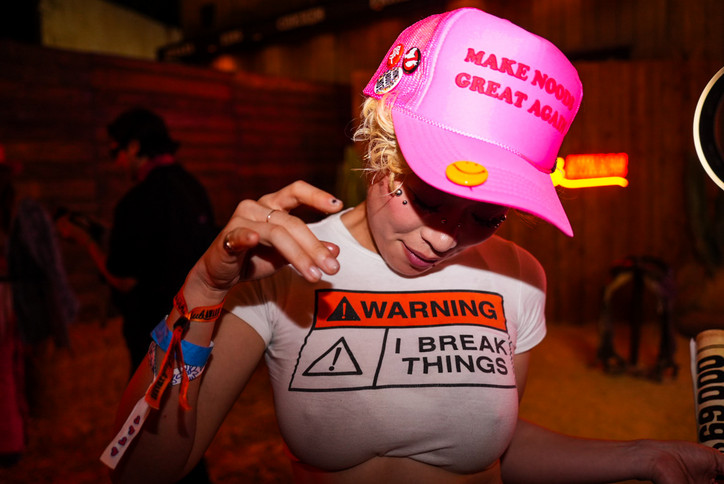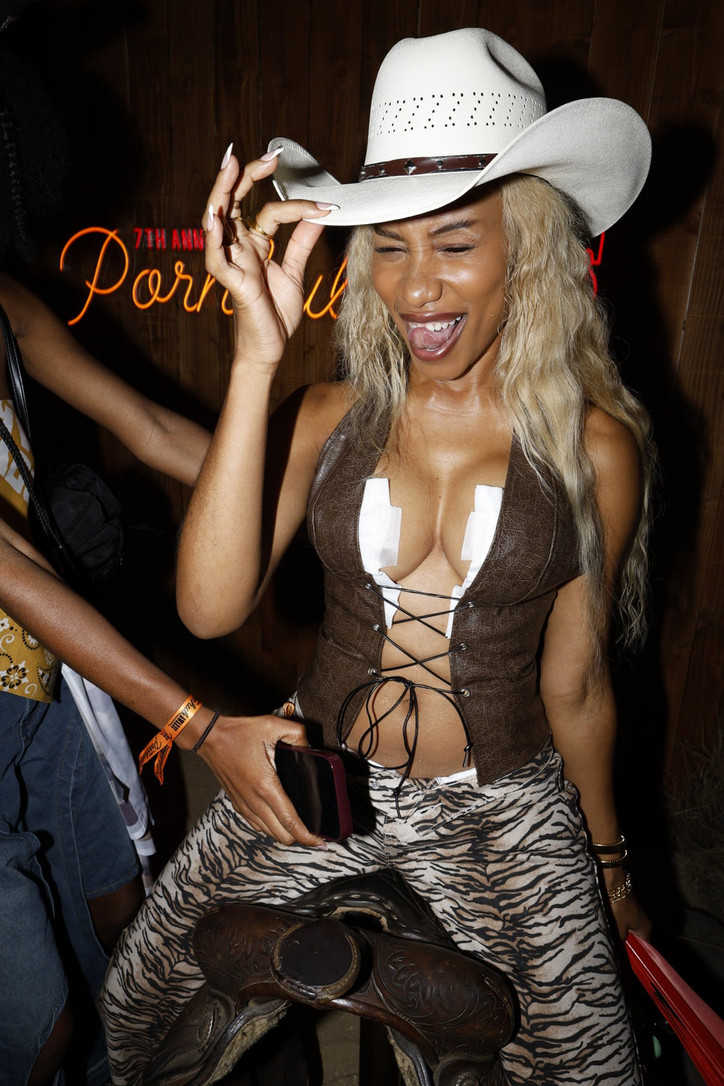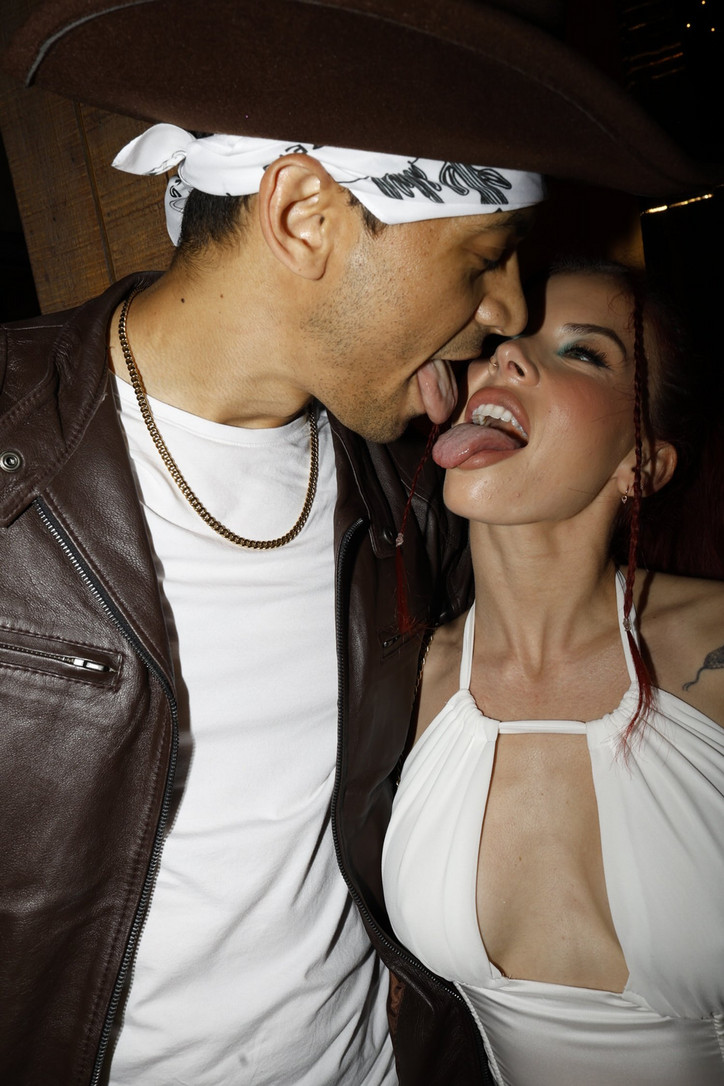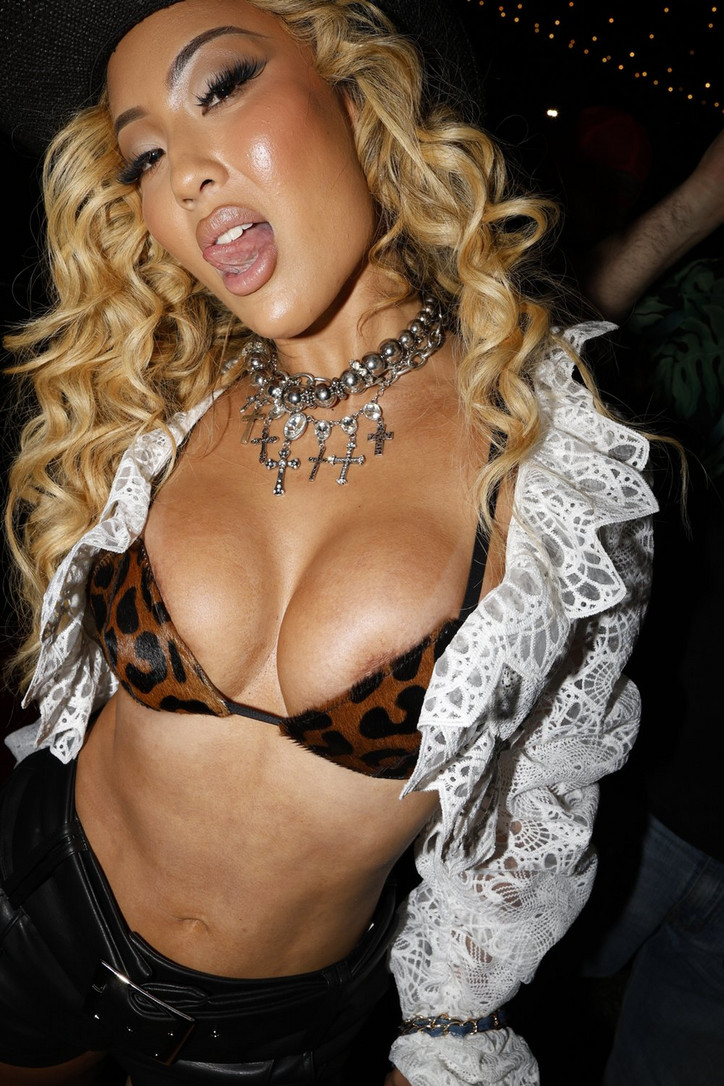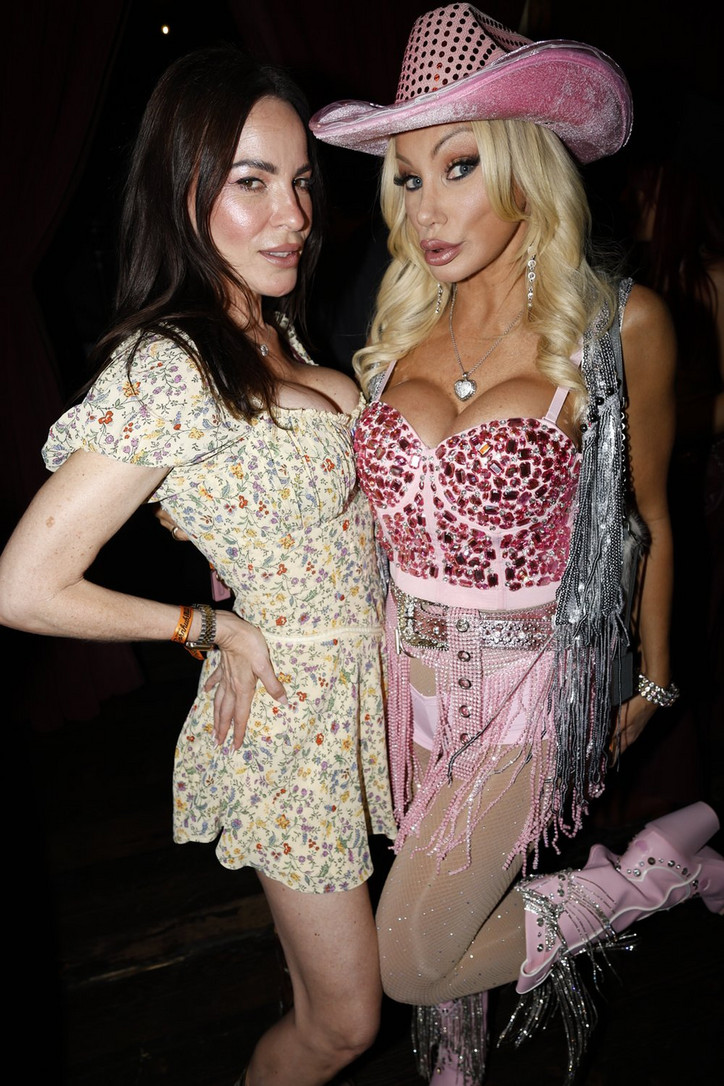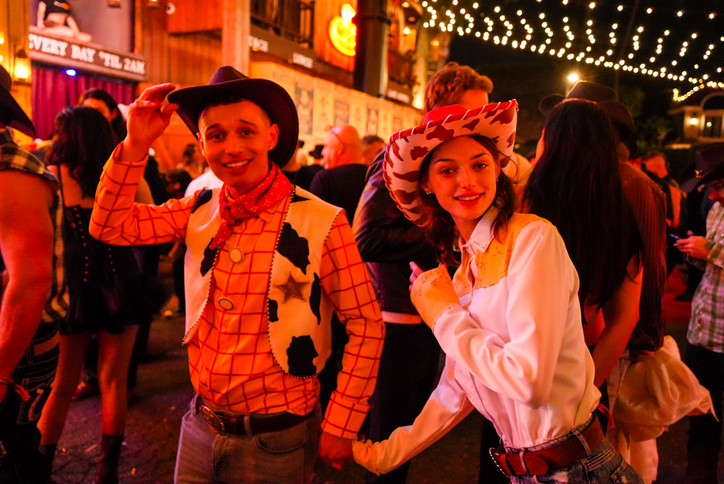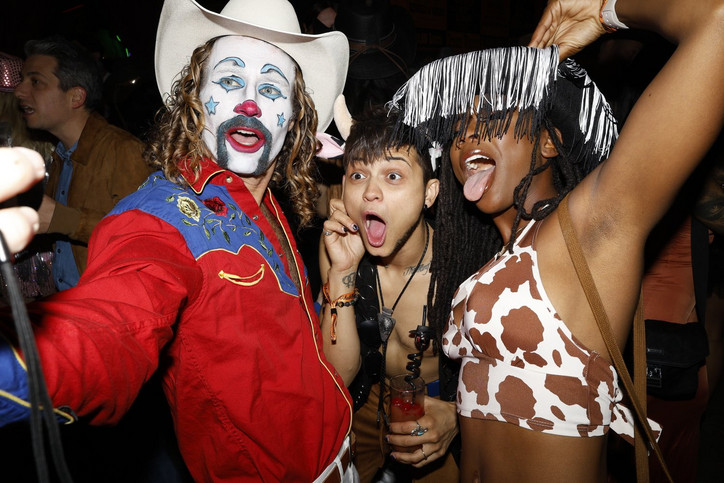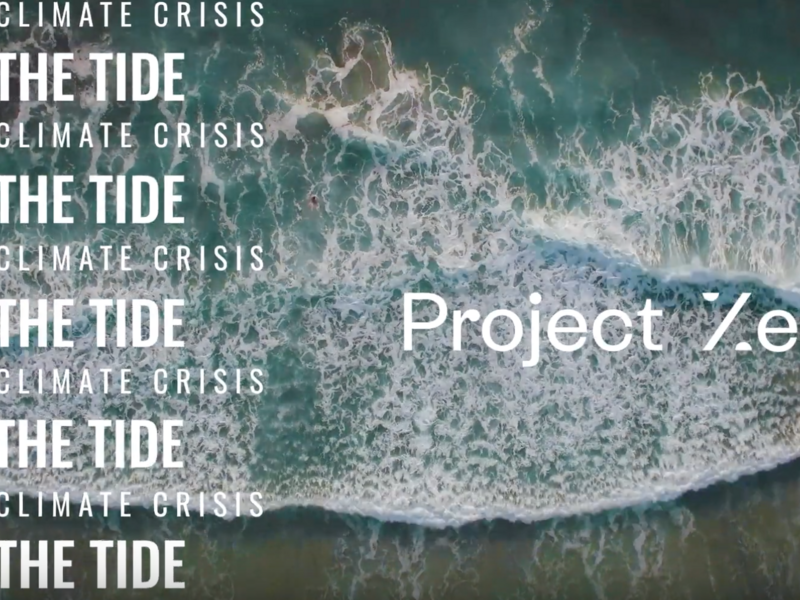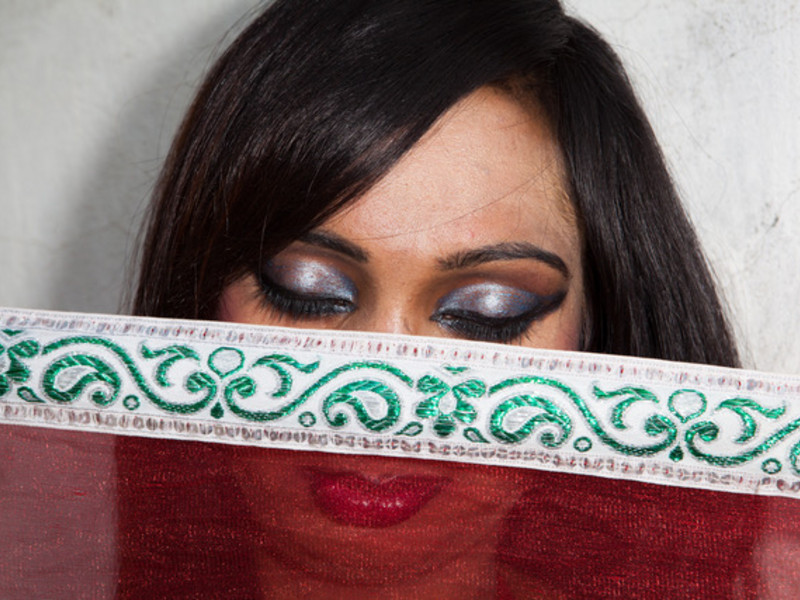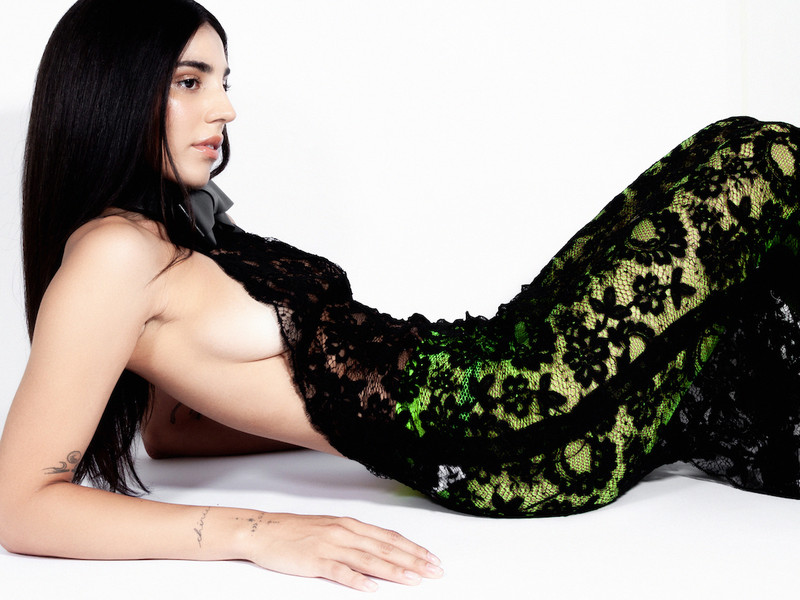Pauli Cakes Looks Inward
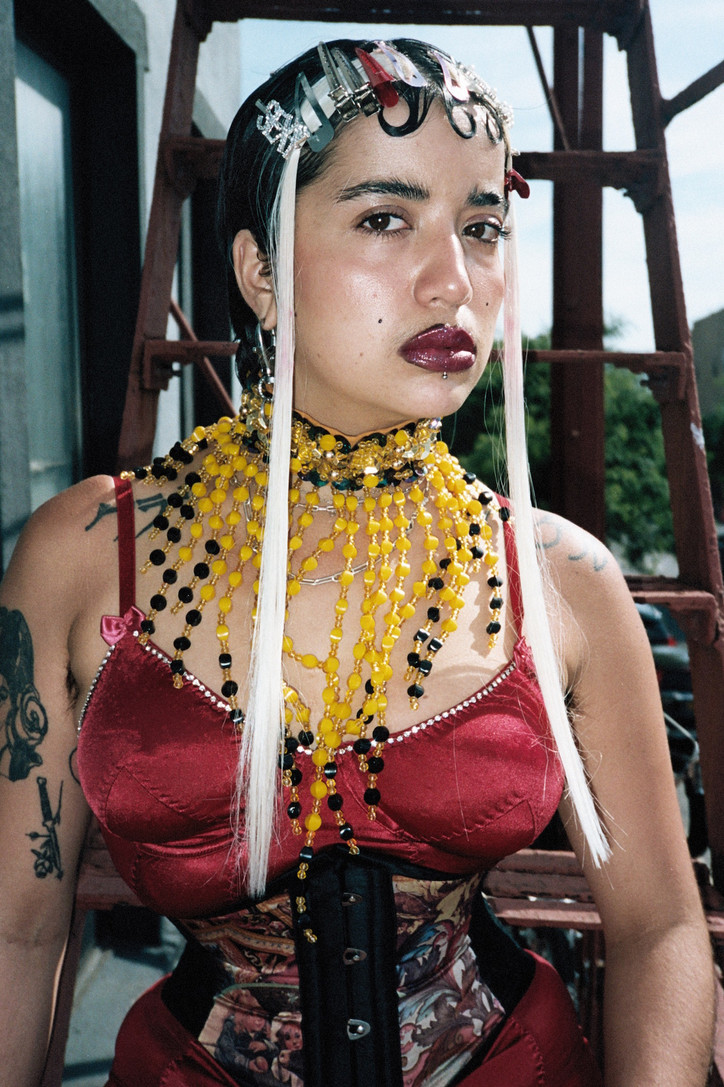
Hi Pauli, Thank you so much for interviewing with us! So, not everyone may know you yet. How would you describe DisCakes mission?
DisCakes is a multifaceted platform that works towards creating spaces, whether digital or IRL, for queer, trans, black, brown, indigenous POC, to come together and create and radically love one another. DisCakes focuses on community care and divesting from state mandated and faschist institutions, whether it be in night life or schools. That’s some of our core ethos.
We’ve been known a lot for the raves and events that we throw, but we’re gravitating towards a more radio/video show, an autonomous platform. We’re working on our website right now. We’re gonna have forums, and an autonomous chat network that people can go on to express their stream of consciousness and communicate with one another.
That’s awesome. So, in terms of your platform and website, what other things other than events is DisCakes going to be seeking to do?
We’re currently working on building our website. When we first started, our main goal was to create a video and radio show that uplifts, amplifies, and centers around the voices of marginalized artists and creating a show that is exclusively queer, trans, black, indigenous POC. Exclusively marginalized people. And divesting from this homogenized narrative of the music industry being dominated by cis hetero white men.
That was our intention. Marley and I had a collective, and we thought about doing this video and radio show. There are places like BoilerRoom and other video streaming networks… yeah, you’re watching somebody play a live set, but you don’t really get to know the story of the person behind playing their music. We want a platform for people to visually and audibly express themselves and share their personal stories, so that could invoke inspiration and radical self expression for maybe a younger kid who’s starting to come into their identity who lives somewhere where there isn’t a strong queer community. That was the beginning goal, and building a record label that is not ran, not operated, and not centering cis straight people.
We’re both very passionate about nightlife and we’re both DJs, so we were like, Okay, we need money in order to buy equipment to sustain the space, because we were starting to film test episodes in our old apartment, which was not sustainable, unfortunately. We started throwing parties to not only raise funds, but to continue this goal of creating platforms for our community and also paying our community and creating Buy Us For Us spaces that don’t have any intervention from these venue owners who really don’t give a fuck about queer and trans people. So, we started throwing raves, and the raves gained a lot of traction. The first one we did had such a beautiful energy and had such an overwhelmingly loving response from our community.
Marley and I are both abolitionists. We both identify as revolutionaries. We put that into everything we do, and when we were creating our rave spaces, we were kind of focusing on the political aspect of it, which is, How are we going to guarantee the safety of the people we are centering at our parties, when the people we are centering at our parties are the ones more targeted by our society and most vulnerable in our society? Those are things we embedded into our rave spaces. We’ve done a couple panel discussions and harm reduction classes; we work closely with an organization, the New York City Dance Safe chapter, which has been focusing on bringing harm reduction to rave and party spaces for decades.
With the pandemic changing all of our lives, we are kind of divesting from being party-centered and reverting back to our core intention. Unfortunately, as much as we love nightlife, there needs to be more of a collectivism besides DisCakes who’s talking about forming safer spaces and who’s talking about political aspects of things. With the uprisings that are occurring, people can no longer say that nightlife is not political, people can no longer say that things are not political. Everything is political. There needs to be a bigger conversation between organizations involved in New York City’s underground nightlife circuit before jumping back into DisCakes as a rave.
I’ve been DJing for 3 or 4 years, and it was the main source of income for me before the pandemic. I felt like I was an entertainer even though it’s something that’s really political. Most music is music of resistance. Most music was started by black and brown people, and I feel like, yeah, for a lot of these crowds I was just an entertainer. Especially when it was predominantly cis/hetero/white crowds. I felt like I never had my voice heard. We wanna amplify the voices of marginalized artists. And that’s more than just, like, Live Laugh Love, it’s everything. It’s like, What can we do to progress past this having to associate creative expression with being assaulted?
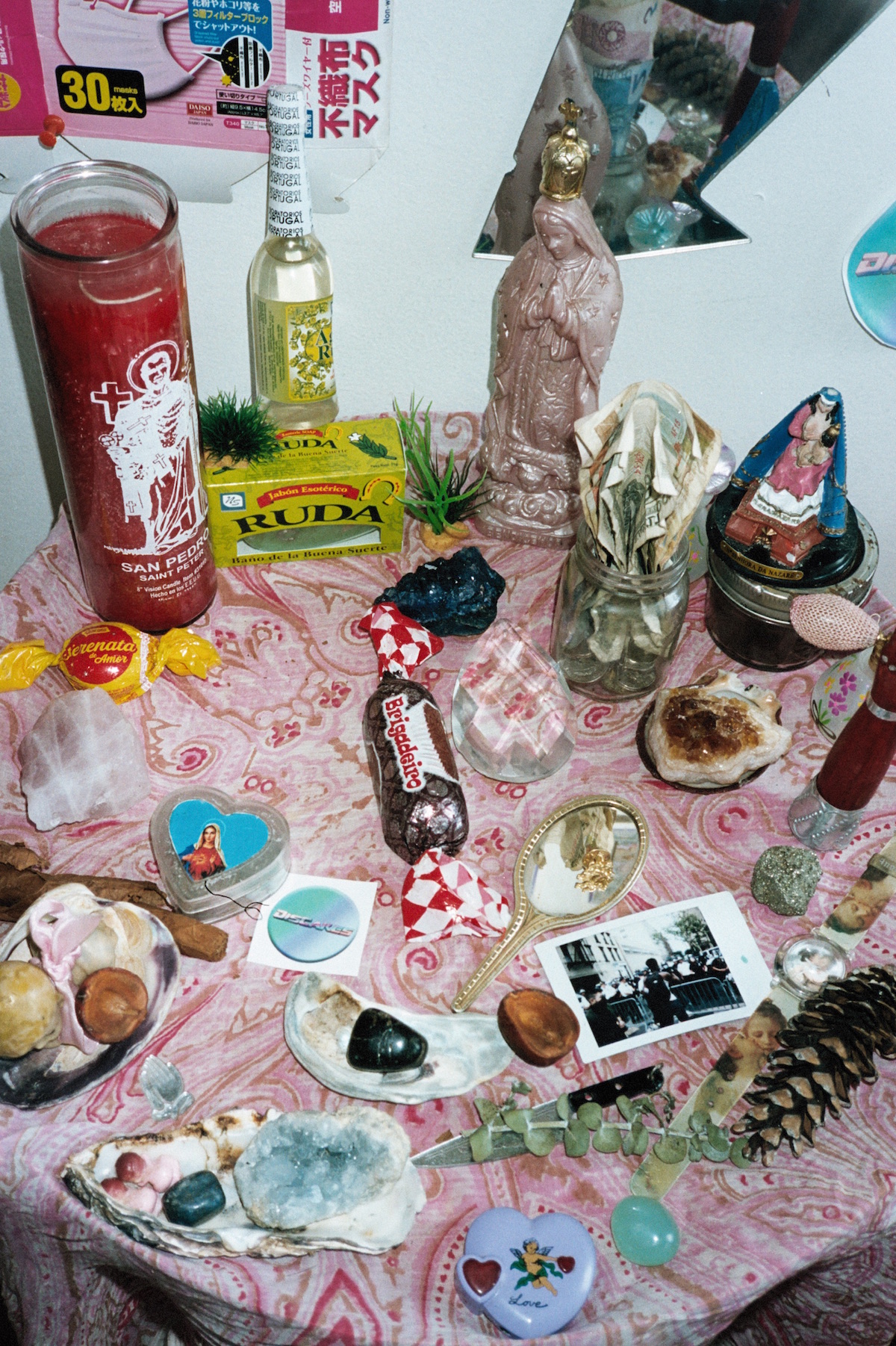
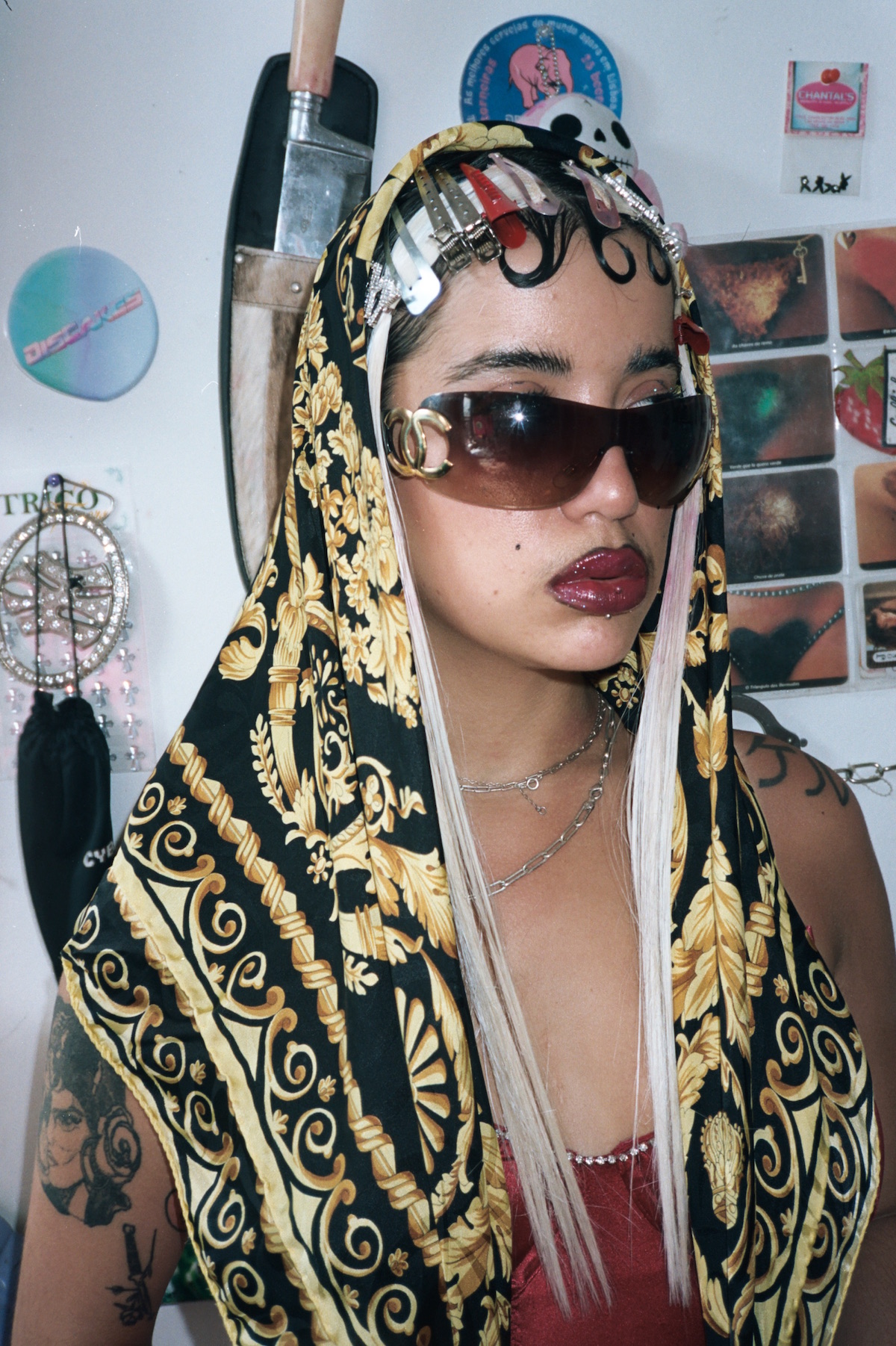
I love that whole description you just gave, that was beautiful. What will it look like to abolish and reconstruct a new system centering on queer, trans, and/or non-binary BiPOC+? What will this look like for the underground nightlife circuit in NYC?
Abolition is such an open ended thing because it's something that will take a lifetime. It’s a process that has to take place for the entirety of reality for it to be effective. What that looks like to me is taking away the resources from fascist and corrupt systems, like jails, the police, schools, hospitals and medical systems... For schools and hospitals, the funding is a lot more urgent, because you can’t just take a break from those things, especially hospitals. But this looks like completely abolishing and completely examining all of the foundations from these individual systems.
For example, the history of the medical system in this country is completely ridden in colonization. If we look at the DSM5 manual, which is the medical diagnostic manual, which doctors refer to when giving out diagnoses to people… something like homosexuality or nymphomania, these were things that were just taken off of that same manual, what, like 20 or 30 years ago? The fact that we’re still using the same manual instead of being like, Fuck this whole manual, Burn the whole manual, Let’s rewrite this manual from the perspective of the people that have been most effected by these diagnoses or by indigenous and black doctors and femme doctors and people in the medical system who have been most marginalized.
Anything that the prison industrial complex has infiltrated, I think needs to be completely destroyed. When we’re talking about police and we’re talking about prisons, abolition looks like completely defunding police to 0 dollars, disarming them, taking all of their weapons away from them, firing all of them, freeing people out of prisons and providing an alternative rehabilitation process for them for the time being until we are able to reallocate that money that is going towards police to respite centers and to places where people can go and process their trauma, which has led them to hurt somebody. Because, you know, criminals are only criminals because they’re indoctrinated by a system that is criminalizing them.
All of these institutions play heavily into nightlife. If something happens, if someone gets attacked, who are we gonna call? When I say abolish the system, I mean when there is something that needs to be handled, I’m going to handle it, my friends are going to handle it, we are not going to depend on a carceral system or police. It’s hard work because it means thinking about solutions to hypothetical and real shit that happens that is triggering and emotionally exhausting things to think about.
Abolition is using our imagination to create a future that we want to be in, that we want our babies to be in, that we want our ancestors to be in. It’s very difficult when we live in a world that tells us our imagination is not real. Abolition is tearing down the system that was made to kill us all and bring us all down.
Even thinking about Pride, how relevant co opting and pink washing queer and trans and LGB experiences is to a lot of night life spaces… We can’t talk about centering marginalized people if we’re not talking about abolishing the system that is actively killing and destroying marginalized people. However, a lot of venues implicate these really carceral punishments and carceral frameworks into running their spaces and aren’t transparent and are centering money over community care. I get it. We live in a capitalist society. We can’t avoid the fact that spaces need money to stay open. However, there’s a difference between living in a capitalist society against your will and having to work because you’re forced to, rather than making everything about money and co opting off of marginalized people's narratives.
There’s this meme I saw the other day that’s like, “The revolution will not be a 305c1,” which is the non profit business organization status. I laughed so hard, ‘cause I was like, that’s so relevant. Abolition in nightlife looks like—the same way a lot of protests have been organized: there are medics in case somebody gets hurt, there are people handing out food in case people are hungry and going to pass out, there’s someone handing out water—community care. It looks like organizers making sure that we have absolutely no need to call the police, call hospitals, overcharge people… Creating a system accessible for everybody or is it accessible for nobody. That is what I envision for nightlife spaces, but it’s a hard thing to play out because it’s always going to be a working process. Things are always going to go wrong. Abolition doesn’t mean recreating a utopia because if there are no mistakes, there’s no learning.
We all know how to do NARCAN training. We all know how to revive somebody if they go into a coma. That’s abolition. 1 and 3 people have medic training because these are normalized things taught in schools, and these are our duties. It’s our duty to keep us safe, it’s not only our duty to create capital and to create money and to profit off of people. Centering and protecting those who are most marginalized, queer, trans, black people in parties, paying them, booking them, listening to them. So we can take notes on what we can do. I can take notes on what I can do as a white-passing, cis-passing person. On what I can do to protect my family that is most marginalized.
Right, it's important to have multiple people of different skill sets in your community, making sure every base is covered and not relying on institutions for those things. Providing it for yourself. And that's a huge part of abolition.
Abolition and recreating the future that we wanna see will not happen through electoral politics. It takes us creating our own programming the way that, like, Black Panthers did, and other grassroots organizations that have created these things themselves without a 305c1 or whatever, without a nonprofit status.
This is switching the topic a bit, but what artists have you been listening to the most in quarantine?
I’ve really been digging BADSISTA, who is a nonbinary, queer DJ from Brazil. They’re really, really sick. I’ve been listening to Nkisi a lot, who’s a black queer DJ from Berlin. I love listening to all my friends, like Marley, Princess Peggy, all my friends are like sickening DJs and artists. I really like Miss Boogie; she’s a trans artist from New York City.
I love 70’s funk, like Roy Ayers, just like groovy stuff. I’ve been going through waves of emotions, so I’ll be listening to hard core techno and acid house one day, and the next day I’m listening to a lot of goth music and punk. I love Bad Brains, I love Kittie, I love metal and rock.
I DJ, and I play a lot of techno and acid house, so I’ve been really doing my deep research into the founders of techno musi— Juan Atkins and Underground Resistance, who are black and brown revolutionaries from Chicago and Detroit who started techno music in the late 80’s. Black and brown and queer techno, DJs, and producers, who layed the blueprint out for electronic music to be what it is today.
I’ve been listening to a lot of my sis UNIIQU3, who is a Jersey bounce DJ. They’re based in New Jersey, they’re absolutely iconic. I love Jersey and Baltimore bounce music, because I grew up going to house parties listening to that. I do house parties in my room when I miss raving, with my lil’ strobe light situation.
Do you make playlists or anything that’s accessible to the public?
I mostly do live sets, but I have some stuff up on SoundCloud. I’m sitting on a lot of mixes that are way past due.
Last week, DisCakes did a collaboration with BoilerRoom, and we did a virtual rave where all the proceeds went to Glits, which is an incredible organization based in New York. All of those sets are going to be uploaded to the DisCakes soundcloud, and when I tell you… there is SO MUCH LOVE put into these sets, like it’s insane! Some of my favorite DJ’s that I was listing: BADSISTA, Nkisi, Peggy, Marley, and QuestionMark, which are like, literally the sickest DJ’s… all the sets are gonna be uploaded on DisCakes.
We’re also sitting on a mixtape that we’re gonna drop soon featuring some mixes from some of our other favorite artists, which will drop in another month or so.
Can you talk a little bit about the Google doc you created compiling resources for creating safer club spaces?
Basically, last year in March, we were throwing our second party which was going to take place in a DIY venue in Brooklyn. We were talking with the person whose space it was, and we were like, this is a DIY underground space, so we are creating our own utopia, our own ecosystem, our own club situation. When you do a rave that’s a renegade or DIY rave, you literally have to do the entire production: your own lights, your own sound, you have to make your own bar… So Marley and I were like, Why don’t we make a doc and find some references for ways that we can make sure we are keeping our babies, our ravers, our staff safe? An outline to thank and appreciate the person who’s letting us use their space so we can trust each other, and they know we actually really care about and respect them and their space?
So I started compiling information for just us to use as a reference. We were thinking about all the awful things - discrimination, assault - that we’ve experienced in venues. It’s not our fault, it’s not my fault something awful is happening to me. It’s systemic. So, what can we do to ensure that we’re taking our bad experiences and transmuting that into harm reduction and protecting our ravers and our community?
I was like, This is more than just me, this is a social issue. This is an accountability process that all venues and organizations need to undergo. Because, when I was doing that, as someone who’s been completely embedded in nightlife, it was an accountability process. Because I’m accountable for all these people, I’m accountable from this day on for every single person who I’m in a nightlife space with. Whether I’m DJing or whether I’m throwing the party. The fact that people own clubs for decades and they’ve never even thought about giving free water to their attendees. It’s fucked up. It’s like being tone deaf to night life being political.
I shared it on Facebook, an open source doc, and people started adding to it. People were adding on their experiences, and there were different sections. Like, one pertaining to security guards. Like, What can we do to create a safer protocol for security guards, and how can we include security in the conversation when we’re talking about the ecosystem of nightlife? Because very often they’re pushed out, or just treated like gatekeepers. A lot of security guards are predominantly black and brown, they’re predominantly treated as if they're disposable. And then people get upset when security guards harass them and treat them like shit, but it’s something that starts from the inside out. Venue owners are treating security like shit, and bartenders, and people as if they’re disposable, so they’re gonna be upset. It’s a cycle that’s gonna put attendees at risk. Talking about that, harm reduction, safer substance use. Things all clubs should be talking about and acting on.
This is something that made Marley and I kind of divest from doing raves, but something I’ve been thinking about a lot is that a lot of people who are in our close and immediate community were either outed or outing themselves as abusers and predators. People who are DJing at our parties and stuff. I’ve been reading up a lot on transformative justice and critical resistance and divesting from carceral thinking when talking about holding people accountable. DisCakes was always like we have zero tolerance for abusers, if you are an abuser, you are blacklisted from our space. But now, it’s like, that approach is still necessary, and I still live by it. I have a zero tolerance policy for abusers. But, moving forward, how are we going to use transformative justice to hold these people accountable so they’re not going out of the city to other spaces and doing the same exact thing. So I want to incorporate that into the nightlife document. It needs to be a community narrative and spoken about in nightlife. Nightlife is where a lot of people go to escape and we need to talk about accountability there.
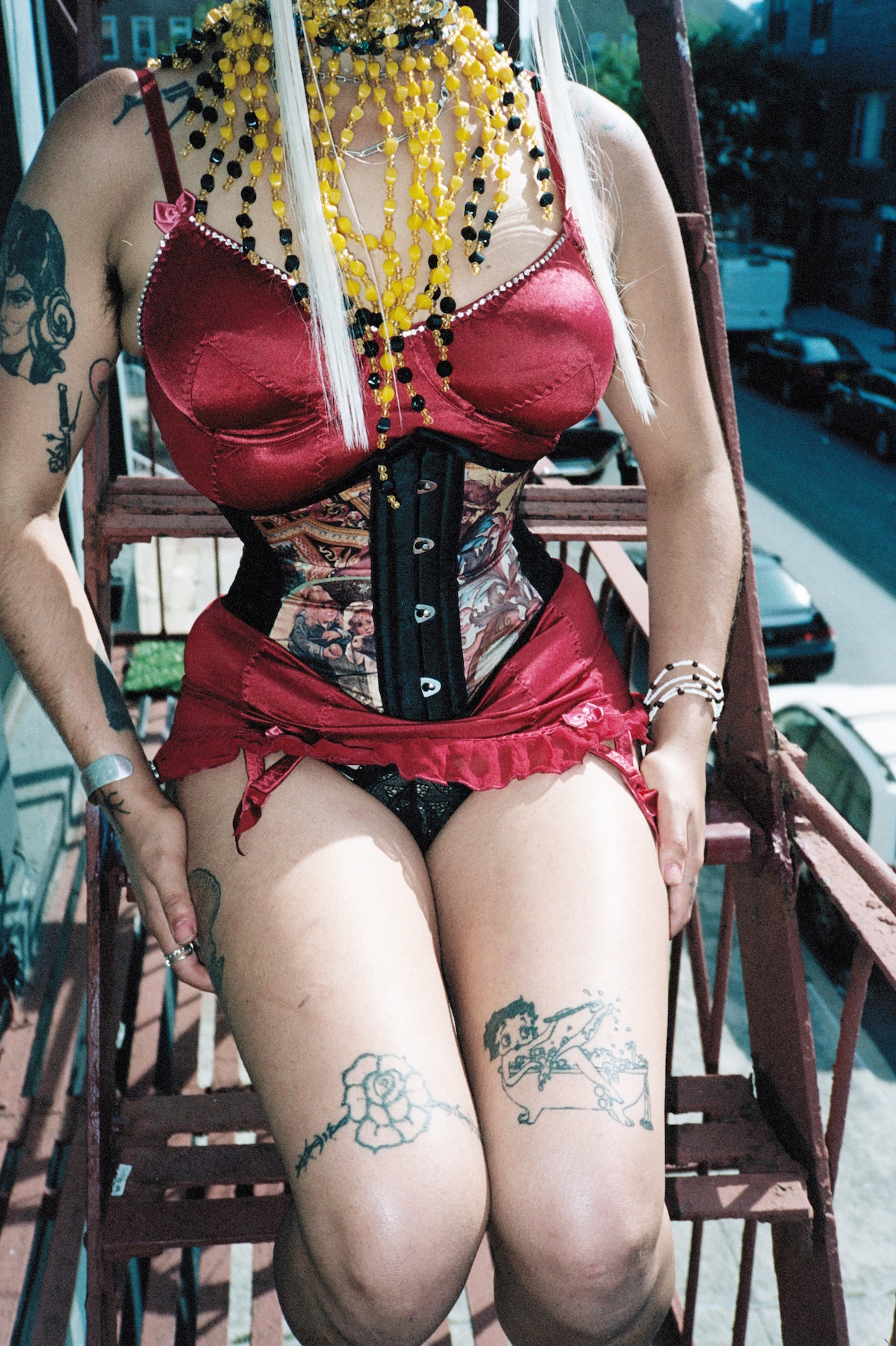
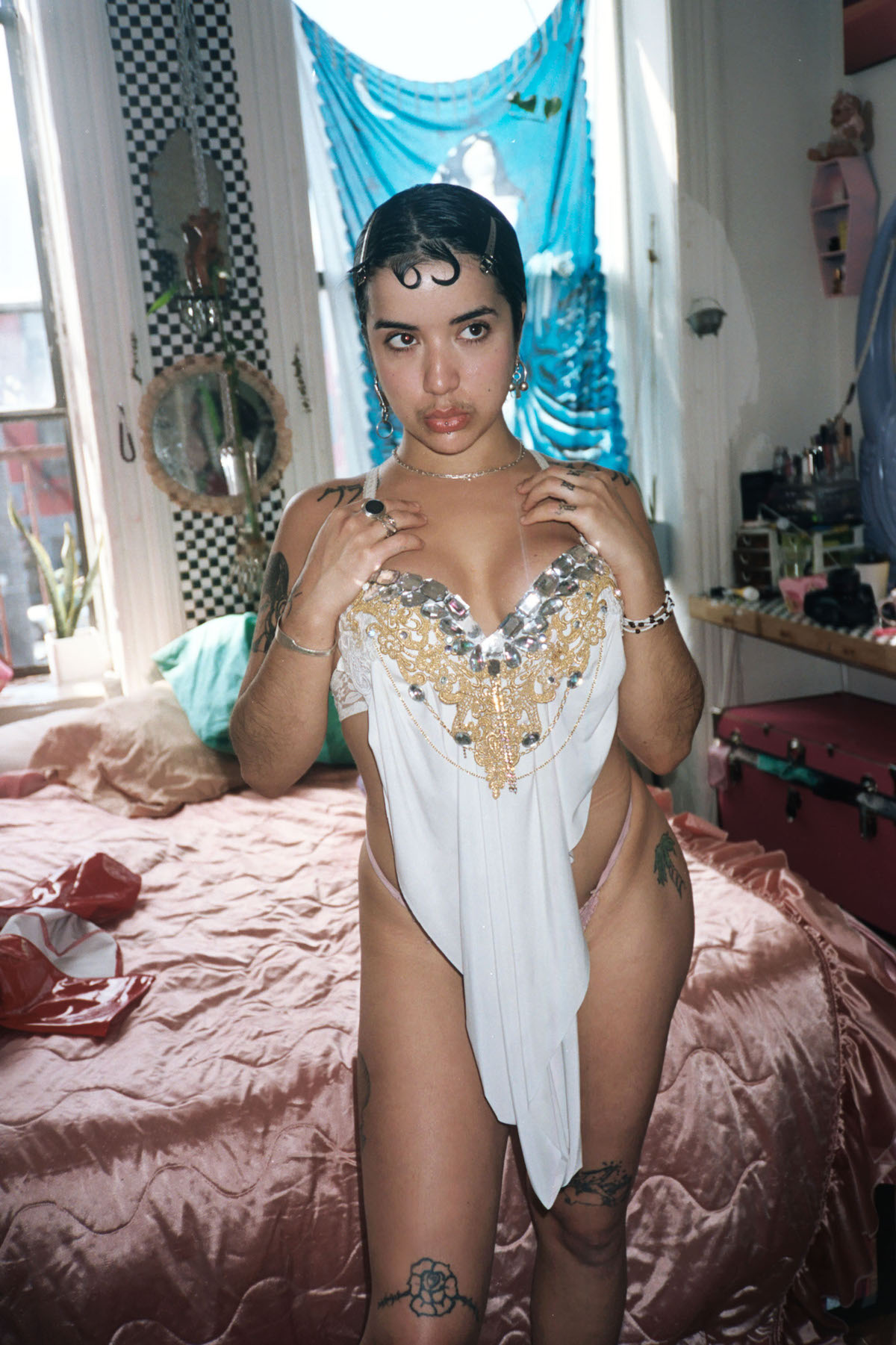
How does DisCakes continue pursuing their mission in the midst of this pandemic?
Marley and I, even if we’re not hosting or putting out things, we’re constantly working on the website, and when we’re going to release our universe online. We’re constantly planning. During the pandemic, we created a financial mutual aid fund where we were pooling money from people in our community and redistributing it to undocumented BiPOC families who are living in our neighborhood. We were able to continue that initiative for about two months, giving families stipends of $300, $350 dollars. Undocumented people here in New York City were not receiving unemployment or any government funds, so we were working on that for a bit.
We’ve been using our platform and our social media presence to be able to pool funds together for people in our community who are systematically denied funds and oppressed by our government. We’ve been doing some virtual raves to raise money, whether it be for Glits, for the Bronx Birthing House Initiative, the Purple Tulip Foundation that builds black queer and trans housing in New Orleans.
For the queer resistance march, I DJed with my friend Rob, who’s also a part of DisCakes on the back of a truck, and we were able to raise around $1500 for Glitz and several other organizations helping with jail support, and Mount Rushmore for people who were getting incarcerated for protesting there. Reinvesting into organizations that are going to promote and enhance black and brown and queer/trans futures.
What’s the best way for someone to contribute to what DisCakes is doing if they can’t donate?
Definitely just by sharing resources with us, by giving us advice, critiquing us. Telling us what they want to see.
It sucks because the raves were so special. I personally don’t really fuck with the Zoom raves that much. There’s something really special about being in person and feeling someone’s energy. It was a hard fucking break when we had to cancel our rave on March 20th. We had LSDXOXO flying in from Berlin, we had Bluebone coming in from Chicago, we had this DREAM LINEUP. We had to cancel. That blew my brains and broke my heart, but our intention was always to create not only IRL spaces, but URL spaces. So DisCakes could be a global thing.
When we finish our website, we’re gonna have forums, live chats, video and radio interviews, and ways that people can support by engaging. If you’re supporting a radical abolitionist, queer, trans, BiPOC organization, informing oneself of abolition and getting politically engaged and doing the best for oneself is a way in itself to support DisCakes. ‘Cause everything we do is for the community. It doesn’t have to be like money. Even somebody talking about safer spaces and creating teach-ins and workshops, DisCakes will always support that. It doesn’t always have to be directly for DisCakes, ‘cause fuck that individualistic shit. As long as people are politically engaged and engaging in radical self love, that within itself is supporting us.
One last question: How do you practice self love day-to-day? How do you self-preserve?
That question is definitely something that’s hard to just be like, I’m practicing self love. It’s always something I’m working towards. It’s a journey. It’s so easy in a capitalist society to be like, Oh, this is self love, I’m buying something for myself; Oh, this is self love, I’m using escapism by binge watching Netflix and eating ice cream, which is fine. That’s a form of self love for some people. But I think a form of self love for me is constantly checking myself and deconstructing and unlearning the capitalist and colonial ideas that I have been fed and conditioned with that further hurt people and further hurt myself. Doing that has been an act of radical self love. And still, while doing that work, embracing my rage, but also continuing to check myself and stay true to myself and affirm myself. Remind myself that I’m protected, I’m powerful, I’m strong.
Since the end of May, I’ve been attending a lot of protests and actions. Sometimes I come home and feel emotionally depleted from being out, not sleeping, maybe getting beat by a police officer. I’ll be like, I hate this world, I’m losing faith. Reminding myself to have faith in abolition, to have faith in my community, to have faith in myself, and I have the ability to transmute pain and hurt into something beautiful, has been acts of self love.
Taking time to come home and pray, light my candles, sit on my altar, talk to my ancestors, do things that are focusing on my spiritual health, my emotional health. Doing things that nourish my body and that are going to make me feel better, make my brain feel better. Putting pressure on where it hurts. Acknowledging where it hurts and acknowledging what’s going on in the world even if it's really painful to see. Reminding myself that I have the power to transmute this evil, transmute this fascism, because I love myself in a radical way and I love my community in a radical way and I love the people around me in a radical way. Practicing that has been a way of self preservation.
Reminding my friends that I love them, forming connections with people that weren’t as easy to form before the pandemic because of nightlife and clout, and all these things that seemed so much more relevant that are completely obsolete now. Embracing what was taken away from us during these unprecedented and regenerative times. Practicing love. Practicing love for myself by establishing boundaries with people, with habits I formerly used as means of escapism and disassociation.
I’ve been in close communication with my spirits. I’ve been asking for strength and tools for my spirits to help me love myself not just for me, but for my community. If my cup is full, I’m gonna be able to pour from it. Before the pandemic, it was easy to escape. Way easier. To look outward instead of inward. I’ve been forced to look inward and do shadow work because I was in New York and by myself most of the time until recently. During that time there were a lot of ups and downs, but I vowed to myself and to my spirits that I would transmute my pain so that I can be surrounded by love, strength, and protection. Then, everyone I touch and encounter I will do my best to spread that love, strength and protection to them. That has been keeping me happy.
When I go to protests with my friends—a lot of my friends that I met in night life—we’ve formed like an affinity group. We check up on each other every day, nobody goes out on the front lines alone. Especially as a queer, nonbinary person, my chosen family… that’s my everything. My community and my family has grown so much. Sorry if I’m ranting.
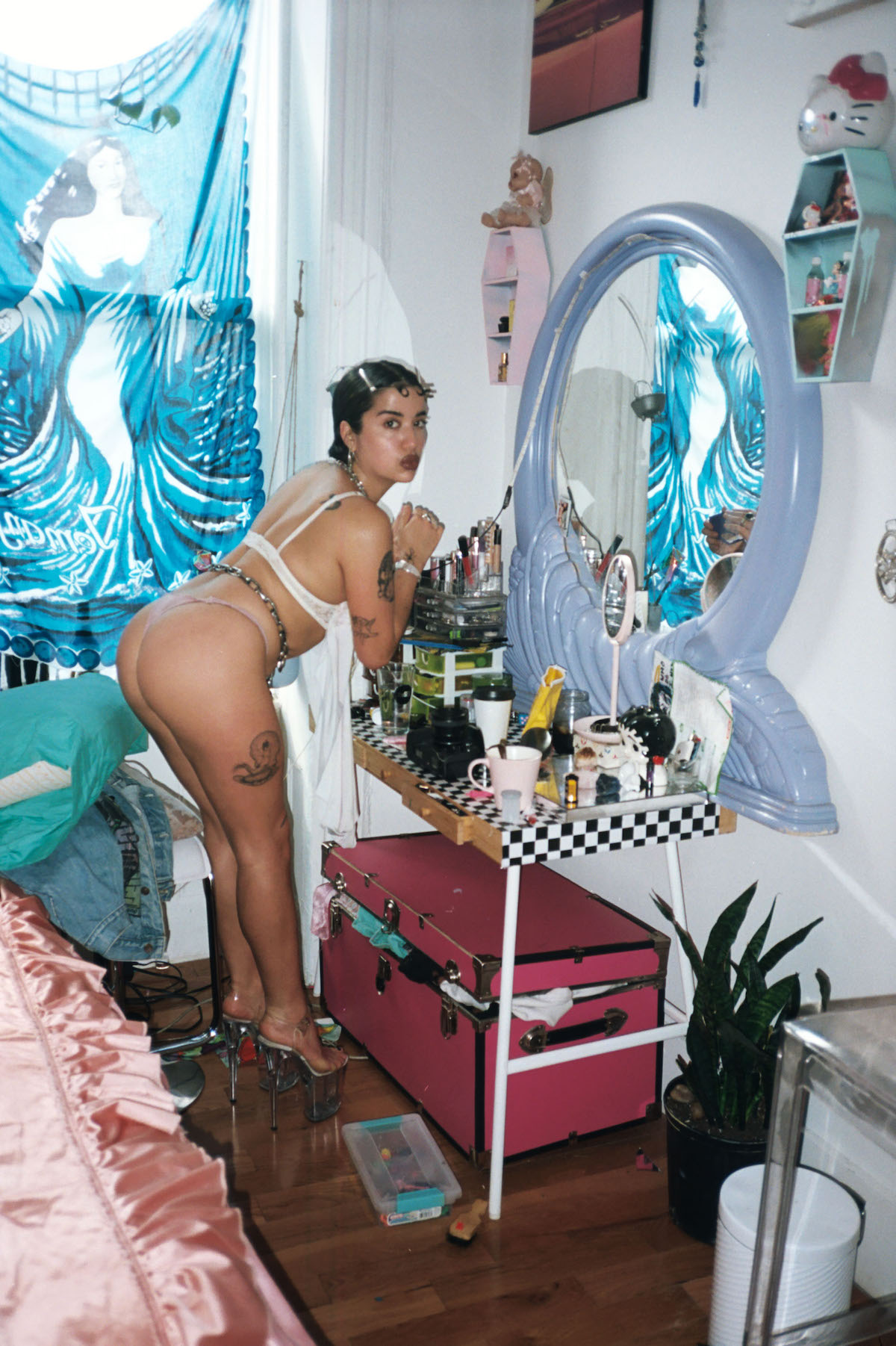
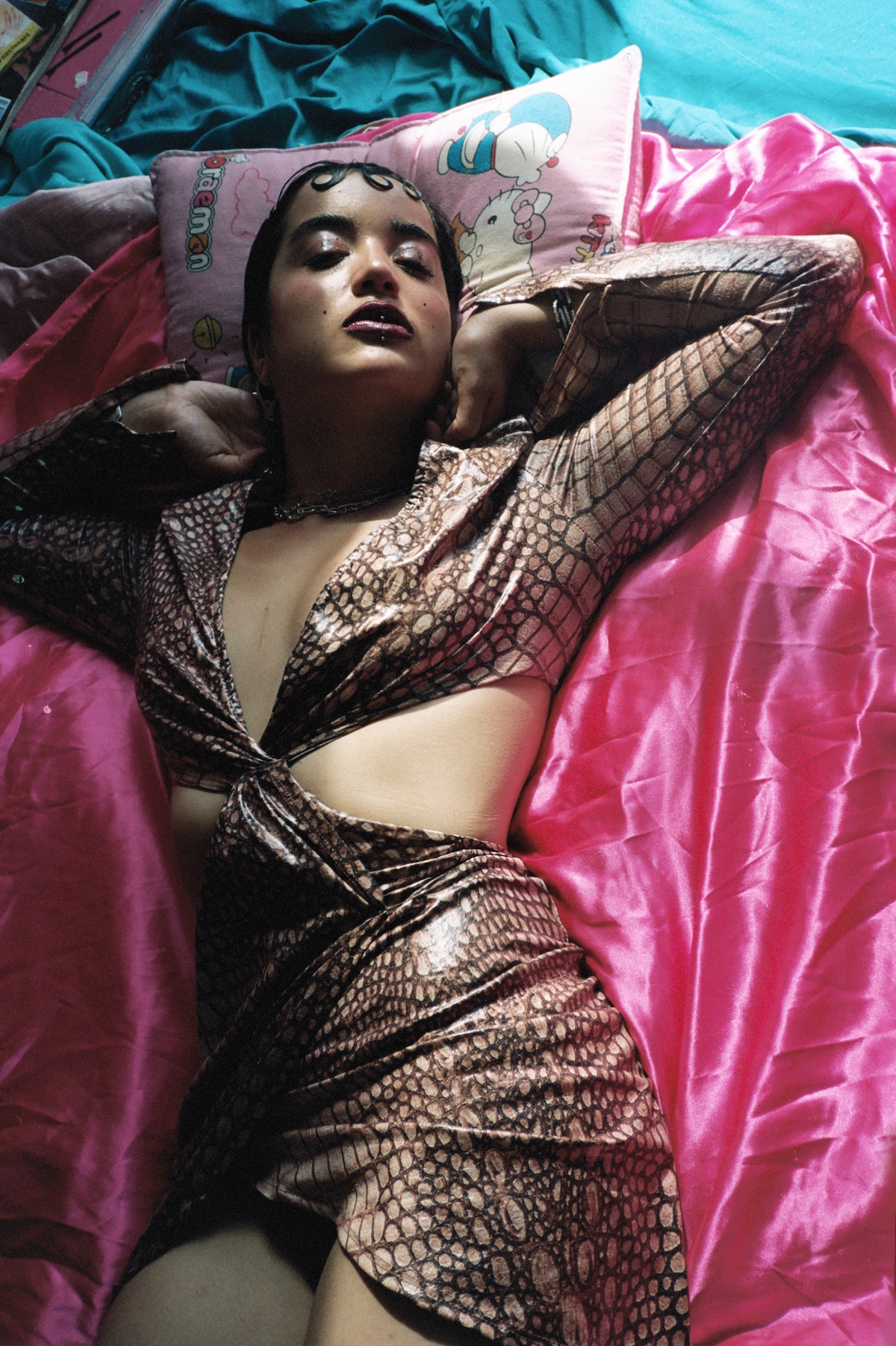
No, I’m totally with you.
That’s been a form of self love and self preservation. When I think of self love, it’s very difficult to think of only myself. Because my chosen family and community play such a huge role in the love I have for myself and the love I am able to give and receive. For me, self love means nothing if I’m not able to give and share that.
I think a lot of people would benefit from thinking about self love in that way, rather than as doing certain things for yourself that are not necessarily contributing to you being whole. Also what you said about checking yourself as a form of self love—that’s a really great way to think about it. You have to be able to love and protect others in order to love yourself. But… the opposite is also true. You have to love and protect yourself in order to do that for others.
We have to have our cups full. We can’t pour from an empty cup. We have to hydrate ourselves first before being able to hydrate others. That’s real. Building a foundation of love.
Being on lockdown in my house… I’m an extrovert completely. I work in nightlife, I love pulling looks, going out, wearing huge platforms, going out, dancing, I love self expression; I thrive off of it. The idea of being self isolated always seems horrifying, and I felt like it was something that would’ve broken me. But being able to do introspective shadow work and become friends with my demons and do work on the things I never realized were subconsciously eating at me, it has created such a beautiful foundation in my heart that allowed me to love myself in a way that I never, ever would’ve thought. It took having to be in isolation, which is something that I have never been used to.
Practicing self love, even though it can and it has, it didn’t really look like bubble baths and bubble gum and live, laugh, love. It looks like sitting and doing shadow work and crying in my mirror. Looking at myself and reevaluating my life and unlearning. Thinking deeply about systemic oppression and these things I’ve always thought about but in a whole new way. Radical self love is all encompassing. It’s not one without the other. It’s going through the pain and putting pressure where it hurts so you can transmute that pain, and it’s also running through a field of daisies with your friends.
Radical self love can be a protest. It’s defying and actively rejecting societal standards that work to oppress people as a whole. That’s what radical self love is. It’s helping others.
It’s helping others.
It has to be radical. Because everything that’s conventional feeds into a system that the government is benefitting from. The love has to be radical. It has to be deep. It has to burn.
My friend Nema has a really dope collective called Radical Love Consciousness that talks a lot about radical self love, radical organizing and radical theorizing. Using love as a catalyst to create revolution. Listening to them, they’re a queer nonbinary black abolitionist, listening to them and hearing their voice… love is radical. Love is a riot. Radical self love is political.
A lot of businesses and corporations use self love heavily as a marketing tactic. It’s so much deeper than that. Self love and self preservation, even mutual aid… these are not capitalist ideas. These are indigenous ideas. These are practices that people have been practicing… gift giving, worshipping the elements, even in spiritualities like Candómble and Santería, these are practices of self love that have existed way before colonialism. I feel like people are starting to reclaim those forms of self love as opposed to the capitalist idea of self love. Which is still okay sometimes. It’s about balancing that and realizing what the burning heart and core of self love and preservation is.
Grasping hold of those ideas and marinating in that stream of consciousness has really helped bring stronger bones in my body, but also build a stronger heart which allows me to love myself more, and allows me to love other people more.

